|
“By my God I can leap over a wall.”
Psalm 18:29
|
|
"When a wicked man dies, his expectation will perish, and the hope of strong men perishes."
Proverbs 11:7 |
The Death of John Shelby Spong
...
Christ Has Prevailed Once Again
...
Christ Has Prevailed Once Again
I learned about John Shelby Spong in my modern church history class in college. So it was interesting to hear that he had passed away this last week at 90 years of age.
With his death we also lay to rest an era. Mark Tooley has appropriately said that Spong's death brings about the death of Protestant Modernism.
Spong was a liberal theologian (or a modernist, as they have traditionally been called). As a child of the enlightenment he rejected Biblical revelation and embraced rationalism. Thus, he believed that Christianity needed to "keep up with modern times." Anything that smacked of being unscientific needed to be tossed out.
For instance, the virgin birth, the bodily resurrection of Christ, his second coming, as well as any belief in an afterlife and miracles had no place in Spong's worldview. To Spong it wasn't rational to believe such things. Those were the beliefs of the archaic Christians (or "fundamentalists," as normal, Bible believing people would be called).
The Modernists, of course, were the forerunners of the Post-Modernists. Modernists liked claims to absolute truth, but they chucked the Bible, which is the basis for it. So their big claims of right and wrong / truth and error were soon supplanted by their Post Modern sons who do not believe in any absolutes.
The Postmodernists took Modernism to its logical conclusion. Who's to say what is right and wrong? If there is no absolute, then what's true for me may not be true for you. It just depends on your personal narrative.
Today you will be hard pressed to find a tried and true Modernist Christian. Like Spong, they are pretty much an extinct species. Modernism really does seem to go to the grave with Spong.
What did not die out was orthodox Christianity. Jesus Christ truly did rise from the dead and he currently lives at God's right hand. He now sends the Spirit, who actively works faith in his people and teaches them all things that God has revealed.
As a matter of fact, the true faith has only grown and multiplied many times over, much to Spong's chagrin. Interestingly, over Spong's 90 years of life traditional Christian belief has grown from 600 million to over 2 billion!
Christ has indeed prevailed and and Spong's hope of ridding the world of such views has failed miserably.
It is just as Proverbs 11:7 says, "When a wicked man dies, his expectation will perish; the hope of strong men perishes." Spong lived a vigorous 90 years. He wrote many books and promoted a liberal agenda with radical passion up to his dying breath. Yet there's very little to show for it. His modernistic hope is dead.
Just as the church he pastored plummeted in attendance during his time, so too does his hope of defeating Christ and Biblical Christianity. It falls and dies with him and is about as useful as the book that Spong wrote on the afterlife in 2010.
By contrast, Christ still reigns. His truth marches on unhindered.
The true gospel not only continues to live and thrive, but it brings people a real and living hope. We have a sure anchor of the soul; a hope that absolute truth delivered to us from God provides.
With his death we also lay to rest an era. Mark Tooley has appropriately said that Spong's death brings about the death of Protestant Modernism.
Spong was a liberal theologian (or a modernist, as they have traditionally been called). As a child of the enlightenment he rejected Biblical revelation and embraced rationalism. Thus, he believed that Christianity needed to "keep up with modern times." Anything that smacked of being unscientific needed to be tossed out.
For instance, the virgin birth, the bodily resurrection of Christ, his second coming, as well as any belief in an afterlife and miracles had no place in Spong's worldview. To Spong it wasn't rational to believe such things. Those were the beliefs of the archaic Christians (or "fundamentalists," as normal, Bible believing people would be called).
The Modernists, of course, were the forerunners of the Post-Modernists. Modernists liked claims to absolute truth, but they chucked the Bible, which is the basis for it. So their big claims of right and wrong / truth and error were soon supplanted by their Post Modern sons who do not believe in any absolutes.
The Postmodernists took Modernism to its logical conclusion. Who's to say what is right and wrong? If there is no absolute, then what's true for me may not be true for you. It just depends on your personal narrative.
Today you will be hard pressed to find a tried and true Modernist Christian. Like Spong, they are pretty much an extinct species. Modernism really does seem to go to the grave with Spong.
What did not die out was orthodox Christianity. Jesus Christ truly did rise from the dead and he currently lives at God's right hand. He now sends the Spirit, who actively works faith in his people and teaches them all things that God has revealed.
As a matter of fact, the true faith has only grown and multiplied many times over, much to Spong's chagrin. Interestingly, over Spong's 90 years of life traditional Christian belief has grown from 600 million to over 2 billion!
Christ has indeed prevailed and and Spong's hope of ridding the world of such views has failed miserably.
It is just as Proverbs 11:7 says, "When a wicked man dies, his expectation will perish; the hope of strong men perishes." Spong lived a vigorous 90 years. He wrote many books and promoted a liberal agenda with radical passion up to his dying breath. Yet there's very little to show for it. His modernistic hope is dead.
Just as the church he pastored plummeted in attendance during his time, so too does his hope of defeating Christ and Biblical Christianity. It falls and dies with him and is about as useful as the book that Spong wrote on the afterlife in 2010.
By contrast, Christ still reigns. His truth marches on unhindered.
The true gospel not only continues to live and thrive, but it brings people a real and living hope. We have a sure anchor of the soul; a hope that absolute truth delivered to us from God provides.
Protections for Religious Liberty
This Sunday at 6pm John Sparks will begin a series which will examine the legal provisions which protect believers in the US as they live out their Christian faith. Sparks, who taught Constitutional History at Grove City College, will survey key U.S. Constitutional cases, and explain their significance to believers today.
This Sunday at 6pm John Sparks will begin a series which will examine the legal provisions which protect believers in the US as they live out their Christian faith. Sparks, who taught Constitutional History at Grove City College, will survey key U.S. Constitutional cases, and explain their significance to believers today.
Review & Reach
Imagine being a fairly new Christian and having to find a church. Where do you go? Google, of course. That's why Google reviews can be important. Giving your 5 star rating and sharing what you love about Hopewell can possibly direct someone to our fellowship.
Imagine being a fairly new Christian and having to find a church. Where do you go? Google, of course. That's why Google reviews can be important. Giving your 5 star rating and sharing what you love about Hopewell can possibly direct someone to our fellowship.
"Mightier than the thunders of many waters, mightier than the waves of the sea, the LORD on high is mighty!"
Psalm 93:4
Psalm 93:4
Mightier than All
...
No Evil Can Prevail
...
No Evil Can Prevail
This week we've had a stark contrast of events. On the one hand Pete Buttigieg released a photo of his faux family. He and his homosexual partner pose together in a hospital bed holding two newborn babies who they are "adopting."
The family is about as fake as the hospital bed they sit in. Neither man carried the babies or labored to give birth to them. Neither need a hospital bed. The woman (women?) who bore them needed that bed. Yet she is missing from the picture, and her motherly care will be missing from the lives of those children.
It's a faux family.
In juxtaposition stands the Texas Heartbeat Bill that was signed into law and made firm by the Supreme Court's passive thumbs up. While the waves of opposition shout and clamor, the law stands.
Furthermore, the Lone Star State has put a significant chink in the Roe v Wade legacy. Not only are lives being preserved through this legislation, individuals are allowed to take civil action against anyone who performs or induces an abortion. It's a shot across the bow that should strike fear in the hearts of Texas abortionists.
What we have is two very distinct steps in different directions. One steps in the direction of life and the preservation of families. The other steps in the direction of perversion and an attempt to normalize it.
The irony of these two events testify to the ongoing battle that is raging. The Lord is waging war in this world and Satan is by no means attempting to sit on the sidelines and pout. It is a clash of the titans of the highest order.
Enter Psalm 93. This song presents us with wild raging waters. The waves thrash with such cataclysmic force that the sound of it can only be compared to loud claps of thunder. It represents a vortex of evil. The enemies of God dramatically rage with fierce, destructive attacks.
Yet, says the Psalmist, the Lord reigns. His might far surpasses the strongest of tempests. Be they physical or supernatural, no power of evil can stand against his will. Foam and froth as they may, the Lord will always reign on high and bring about his purposes on earth.
Thus, in the face of cultural drift, we may take confidence in the sovereignty of God. His purposes in the earth will never slacken and we may have hope that the evils of this world will be be nothing more than a child's bath tub splashes to our God.
In the glowing cultural victories we may also rejoice. These testify to the fact that the throne of our King is established forever and none shall stay his hand.
Fellowship Meal
After the service this coming Lord's Day Hopewell will enjoy an extended time of fellowship over lunch. The church will provide chicken, place settings, and drinks. Families are encouraged to bring a side to share according to their family size. (Evening study will commence at 6 pm.)
After the service this coming Lord's Day Hopewell will enjoy an extended time of fellowship over lunch. The church will provide chicken, place settings, and drinks. Families are encouraged to bring a side to share according to their family size. (Evening study will commence at 6 pm.)
Hopewell Prayer List
Hopewell is always dependent upon God's favor. Your prayers are instrumental for securing that blessing. For that reason, we'd love it if you would request a prayer list and commit to praying for at least one family each day.
Hopewell is always dependent upon God's favor. Your prayers are instrumental for securing that blessing. For that reason, we'd love it if you would request a prayer list and commit to praying for at least one family each day.
|
"Repent and turn again that times of refreshing may come from the presence of the Lord."
Acts 3:20 |
Restoring What Was Lost
...
The Promise of a Bountiful Future
...
The Promise of a Bountiful Future
The story typically sounds the same. It may have slightly different notes that it strikes, but the overall theme is essentially repeated. Someone will recount how they are now missing out on _____ due to mistakes they made in the past.
A variety of things can fill in the blank:
These are merely a sample of the kinds of things over which people often express regret.
Into this sorrow the gospel breaks with beaming light. There may not be a way to go back and change the past, but there is a way forward which gives great hope.
Peter spoke of it in Acts 3 when he said that the Lord can bring "times of refreshing." Peter drew on the agricultural world of his time. Droughts would cause the crops to wilt, but a rain would refresh the lands and make them green and fruitful once again.
This is what God typically does in his grace. He brings about a new day, a time of restoration, a new beginning. Many times he even deals out even more bounty than one could imagine ever having gained.
Similarly, the Israelites were told that the Lord would restore what the locusts had eaten (Joel 2:25). They would find that God would deal "wondrously" with them and satisfy their desires.
This is what the people of God have experienced throughout time.
When a person repents of his sin and turns to God, they find that they see renewal and enrichment in their lives. New joy blossoms where old wounds had once existed.
Of course, this is not a flat out promise that God will give you mega millions or that the drunkard will definitely get his wife back. It is, however, a promise that the Lord will bring about a time of refreshing. He likes to plant gardens in the midst of ashes.
Take the apostle Paul as one example. He spent many an hour persecuting the church. That time of his life may have been misspent, but all was not lost. Nothing could compare to his post conversion years. He enjoyed no end of blessing as the Lord worked through him to bring light and life to much of the Western world.
Similar things happen in the lives of those who repent and turn to God today. Fathers often see new bridges built into his child's life. The Lord often turns the hearts of the children to their fathers when the heart of the father is turned to his children.
Then again, those fathers may experience the blessing of God in other ways. Think here of the thief on the cross. He lost much through his thieving. He squandered his very life in his love of wealth. Yet, when he looked to Christ, he gained exceedingly more than he could ask or imagine. Christ said to him, "Today you will be with me in Paradise." He found enrichment that far surpassed financial gain.
These might not necessarily be your regrets, but they do serve to show how the Lord typically works. Whatever your regret may be, your past does not need to rule you or pull you down. There is hope in what God can (and will) do.
In all, we recognize that God's grace is greater than all our sin. He is able to restore the fortunes of his people and bring about a wonderful times of refreshing.
A variety of things can fill in the blank:
- Money may have been lost. Due to poor choices and wasted time in days of yore, a person may come to lament that his career path has left him in a rather dismal state financially.
- Time with children may have been lost. Fathers and mothers sometimes find that their sinful patterns drove a wedge between them and their kids. Maybe it was the long hours on the job. Maybe it was the drugs. Whatever it was, it alienated them.
- Pleasure is lost. The worst of all mid life crisis is when a person looks back and sees that he has spent his life pursuing pleasure, but never really gained it. Instead of living for Christ and developing a strong spiritual legacy, he has filled memory albums with years with vanity.
These are merely a sample of the kinds of things over which people often express regret.
Into this sorrow the gospel breaks with beaming light. There may not be a way to go back and change the past, but there is a way forward which gives great hope.
Peter spoke of it in Acts 3 when he said that the Lord can bring "times of refreshing." Peter drew on the agricultural world of his time. Droughts would cause the crops to wilt, but a rain would refresh the lands and make them green and fruitful once again.
This is what God typically does in his grace. He brings about a new day, a time of restoration, a new beginning. Many times he even deals out even more bounty than one could imagine ever having gained.
Similarly, the Israelites were told that the Lord would restore what the locusts had eaten (Joel 2:25). They would find that God would deal "wondrously" with them and satisfy their desires.
This is what the people of God have experienced throughout time.
When a person repents of his sin and turns to God, they find that they see renewal and enrichment in their lives. New joy blossoms where old wounds had once existed.
Of course, this is not a flat out promise that God will give you mega millions or that the drunkard will definitely get his wife back. It is, however, a promise that the Lord will bring about a time of refreshing. He likes to plant gardens in the midst of ashes.
Take the apostle Paul as one example. He spent many an hour persecuting the church. That time of his life may have been misspent, but all was not lost. Nothing could compare to his post conversion years. He enjoyed no end of blessing as the Lord worked through him to bring light and life to much of the Western world.
Similar things happen in the lives of those who repent and turn to God today. Fathers often see new bridges built into his child's life. The Lord often turns the hearts of the children to their fathers when the heart of the father is turned to his children.
Then again, those fathers may experience the blessing of God in other ways. Think here of the thief on the cross. He lost much through his thieving. He squandered his very life in his love of wealth. Yet, when he looked to Christ, he gained exceedingly more than he could ask or imagine. Christ said to him, "Today you will be with me in Paradise." He found enrichment that far surpassed financial gain.
These might not necessarily be your regrets, but they do serve to show how the Lord typically works. Whatever your regret may be, your past does not need to rule you or pull you down. There is hope in what God can (and will) do.
In all, we recognize that God's grace is greater than all our sin. He is able to restore the fortunes of his people and bring about a wonderful times of refreshing.
The Court & the Church
On Sunday evenings in September (12, 19, & 26) John Sparks will lead a series on the church and the courts. John will walk us through several United States court cases which were significant for the church in the United States. Join us at 6 pm.
On Sunday evenings in September (12, 19, & 26) John Sparks will lead a series on the church and the courts. John will walk us through several United States court cases which were significant for the church in the United States. Join us at 6 pm.
What is Reformed Theology?
Hopewell is a 'Reformed and family integrated church' in Ashland. But what exactly does that mean? This series by RC Sproul will help you gain an understanding of a few of the basic theological principles regarding the Reformed faith.
Hopewell is a 'Reformed and family integrated church' in Ashland. But what exactly does that mean? This series by RC Sproul will help you gain an understanding of a few of the basic theological principles regarding the Reformed faith.
"And we know that for those who love God all things work together for good."
Romans 8:28
Romans 8:28
Everything Sanctifies
...
All Things Work Together for Our Growth in Grace
...
All Things Work Together for Our Growth in Grace
In our last issue we noted that Christians are called to grow in grace. And our growth in obedience comes through certain means. Just as the Lord uses food to cause us to grow physically, the Spirit of God uses certain things to cause us to grow in holiness.
The question then becomes, what things does the Lord utilize in this process?
Scripture tells us that the Spirit can use all kinds of things. As a matter of fact, you can say that everything is a means of grace, at least in some way. After all, Scripture says,
“And we know that for those who love God all things work together for good, for those who are called according to his purpose.” (Rom. 8:28)
What is our good if not our growth as a believer? The best possible thing that can ever happen to us is that we be delivered from sin and become more like Christ.
Thus, we can say that everything that happens to a believer in any given day is being used to bring us into greater spiritual maturity.
For instance, licking an ice cream cone or holding a new born baby can be considered a means of grace. It may sound odd at first. These are such maundane things. They may even seem very "unspiritual." But these blessings are granted to us so that we may experience greater joy, thankfulness, love, peace, etc.
A walk in the park or sitting back in your easy chair may seem like inconsequential acts, but we should realize that these ordinary, everyday blessings are part of how the Lord accomplishes Hs divine purpose for our lives.
We may also think of the trials that come our way too. Though difficulties may be grievous, they have a part to play in our sanctification.
A run in with your kids (or an exasperating parent) may not feel all that good. It may even occasion a great deal of frustration. Yet it should not be doubted that these are just a few of the "all things" that Romans 8 speaks of.
James 1 reiterates this in a more defined manner.
“Consider it all joy my brethren, when you meet trials of various kinds. For you know that the testing of your faith produces steadfastness. And let steadfastness have its full effect, that you may be perfect and complete, lacking nothing.”
James is saying that every time you stub your toe, suffer the loss of a job, or become ill the Lord is at work. Those trials are the means He is using to make you more steadfast. It is His way of shaping your character and making you into the kind of person He wants you to be.
This is why you can consider it all joy no matter how bad it may seem. If you are a believer in Christ, there may be times of lament and sorrow, but, ultimately, there is no bad that can really happen to you. All things are being worked for the good for those who love God and called according to His purpose.
While it is wonderful to think that every single thing in our daily experience is being used by God to bring us into greater obedience, we should recognize that this is just the first tier. There is even more grace to be had.
In our next issue, we'll find that there are even greater, more effective means that God uses. Stay tuned to learn how you can grow faster and gain even more grace.
Great Lives in WWII
This Sunday night (July 11) Bob Ludwig will be starting a 3 week series entitled, "Great Lives." The talks will center on different people involved in World War II and the work of freeing the Jews. We'll gather at 6 and begin soon after with singing and prayer.
This Sunday night (July 11) Bob Ludwig will be starting a 3 week series entitled, "Great Lives." The talks will center on different people involved in World War II and the work of freeing the Jews. We'll gather at 6 and begin soon after with singing and prayer.
Worship with Hopewell
We invite you to join us this coming Lord's Day as we worship the one and only true God. Hopewell is a family integrated church located at 1995 Baney Road. Morning worship begins at 10:30 am.
We invite you to join us this coming Lord's Day as we worship the one and only true God. Hopewell is a family integrated church located at 1995 Baney Road. Morning worship begins at 10:30 am.
"Grow in the grace and knowledge of our Lord and Savior Jesus Christ."
2 Peter 3:18
2 Peter 3:18
Got More Grace?
...
Get Busy Growing in the Lord
...
Get Busy Growing in the Lord
How do you get more grace?
Such a question may seem odd to you. After all, grace is given, right? It's a gift. You can't just pile on more gifts like you would plie on potatoes at a buffet dinner, right?
It is true. Grace is sovereignly given. However, you can grow in grace and obtain more of the immense saving blessing in your life. As a matter of fact, Scripture encourages you to do so.
"But grow in the grace and knowledge of our Lord and Savior Jesus Christ." 2 Peter 3:18
Peter commands his audience to grow in grace. He uses his apostolic clout to require us to get more salvation in our lives.
We begin to understand the meaning of this injunction when we grasp the fact that we are sanctified by grace just as much as we are justified by it.
God saves His people from sin. He does it by bestowing His undeserved favor. When we come to faith that very first time the Spirit pours down upon us the riches of His mercy and our sins are washed away.
The same sort of thing happens throughout our lives. God, in his grace, delivers us more and more from our daily sins and shortcomings.
Key in on that "more and more" part. Understand that our God is more than ready to renew us. He's eager that we "grow up in our salvation" (1 Peter 2:2). What's more, we can grow in this grace as we make use of the means He uses to communicate this grace to our hearts.
That last sentence may have sounded a little technical. Let's break it down. The Lord doesn't just zap us to make us holy, does He? It would be nice if He would just drop grace down from time to time like a good old spring rain. We'd be righteous in no time.
The Lord takes a rather different approach. He uses specific means to accomplish this.
Think of your sanctification like your physical growth. You don't just wake up to find that you had a 6 inch growth spurt one night. Neither do muscles pop out of your arms without any warning. You must eat and exercise. These are the means God uses to grow your body.
Similarly, the Lord uses certain means to produce holiness in your life. What are these means God uses to cause you to grow in righteousness?
That's what we'll be looking at over the next few issues of the Hopewell Weekly. Here at the outset, it's necessary just to learn these great points:
1. GRACE: We grow in Christ by grace through faith. Our salvation, from first to last, is all of God.
2. GROWTH: Our growth in Christ after our conversion is inevitable. The Lord stirs us onward towards holiness and will not let us remain stagnate. That's the glory of His grace!
3. MEANS: Our growth doesn't have to sputter along. We can further our growth by giving our attention to the means that He uses to bring that grace to bear on our lives.
Such a question may seem odd to you. After all, grace is given, right? It's a gift. You can't just pile on more gifts like you would plie on potatoes at a buffet dinner, right?
It is true. Grace is sovereignly given. However, you can grow in grace and obtain more of the immense saving blessing in your life. As a matter of fact, Scripture encourages you to do so.
"But grow in the grace and knowledge of our Lord and Savior Jesus Christ." 2 Peter 3:18
Peter commands his audience to grow in grace. He uses his apostolic clout to require us to get more salvation in our lives.
We begin to understand the meaning of this injunction when we grasp the fact that we are sanctified by grace just as much as we are justified by it.
God saves His people from sin. He does it by bestowing His undeserved favor. When we come to faith that very first time the Spirit pours down upon us the riches of His mercy and our sins are washed away.
The same sort of thing happens throughout our lives. God, in his grace, delivers us more and more from our daily sins and shortcomings.
Key in on that "more and more" part. Understand that our God is more than ready to renew us. He's eager that we "grow up in our salvation" (1 Peter 2:2). What's more, we can grow in this grace as we make use of the means He uses to communicate this grace to our hearts.
That last sentence may have sounded a little technical. Let's break it down. The Lord doesn't just zap us to make us holy, does He? It would be nice if He would just drop grace down from time to time like a good old spring rain. We'd be righteous in no time.
The Lord takes a rather different approach. He uses specific means to accomplish this.
Think of your sanctification like your physical growth. You don't just wake up to find that you had a 6 inch growth spurt one night. Neither do muscles pop out of your arms without any warning. You must eat and exercise. These are the means God uses to grow your body.
Similarly, the Lord uses certain means to produce holiness in your life. What are these means God uses to cause you to grow in righteousness?
That's what we'll be looking at over the next few issues of the Hopewell Weekly. Here at the outset, it's necessary just to learn these great points:
1. GRACE: We grow in Christ by grace through faith. Our salvation, from first to last, is all of God.
2. GROWTH: Our growth in Christ after our conversion is inevitable. The Lord stirs us onward towards holiness and will not let us remain stagnate. That's the glory of His grace!
3. MEANS: Our growth doesn't have to sputter along. We can further our growth by giving our attention to the means that He uses to bring that grace to bear on our lives.
"A jar of sour wine was there, so they put a sponge full of the sour wine on a hyssop branch and held it to his mouth."
John 19:29 ESV
John 19:29 ESV
No Comfort for the Damned
...
Jesus Drank All Death's Dark Curse
...
Jesus Drank All Death's Dark Curse
There is no comfort in hell. At every moment those who are damned are afflicted with pain. There is no dulling of it; nor is any “getting used” to the sensation.
The puritans would talk about souls “writhing” in hell. That is an apt description because there are no comforts to be had.
If you’ve ever had a bad back, you have tried to get comfortable. It isn’t possible. You keep turning and twisting. You are writhing on your bed because the pain will not let you sit long in any given position.
Such is the experience of one who is in hell, and such was the experience of Christ in his death.
At his dying moment, Christ received no comfort whatsoever to sooth him.
As his body languishes away on that cross, it withers with the pains of dehydration. He had had nothing to drink for at least 12 hours, and the day’s trauma has taken its toll. He thirsts.
Typically, when someone is in their dying days or last moments of life you do everything in your power to set them at ease. You give them a pillow so they might be comfortable. If they are thirsty, you may put a cool cloth to their lips or give him some ice chips. You give them some sort of reprieve.
Today we even have hospice care. It is a whole business developed around the idea that the sick and dying should be given as much comfort as possible before they pass from this life into the next.
Yet when Christ was in the throes of death he received no such succor. His thirst was not quenched with a damp cloth or even a sweet wine—a sensation that would have brightened his eyes exceedingly, if even it be only for a fleeting moment.
No! He was damned of God. Instead they shoved putrid wine in his face. They made him suck on rancid liquid, akin to vinegar; something so repugnant that it would make your body lurch and spit...something very hard to do on a cross.
His bitter death was made even more bitter; yea, bitter to the end.
Hell is a place where every comfort in life is removed. As God pours out his wrath and curse he strips away every grace and every blessing that he allotted you in life. Water and refreshment is a luxury that is afforded to us now by means of God’s benevolence. When we are deprived of it we should recognize that it is the due wages of our sin.
Here on the cross Christ was drinking down that dark curse. And he must drain this cup to the very dregs!
It was not enough for him to be deprived of the soothing sensation of hydration. The bitterness of the judgment of God must be tasted in its full. It was not enough for him to thirst, he must writhe. He must have his pains increased and intensified. He must be utterly vexed.
His taste buds must be aggravated through the irritating stimuli that sin justly deserves. He must gag and choke even to his dying breath. Even that last breath must not be easy. It must come through a throat clogged with a cocktail of death.
And there he acts as our substitute. The hot hostility of justice was shoved down his gullet to the very end so that we may taste the sweet gift of eternal life. There was no mercy given to him so that we might have every drop of mercy given to us. He lost all comforts, so that we might be comforted. He was made to writhe, so that we may be able to sing.
The puritans would talk about souls “writhing” in hell. That is an apt description because there are no comforts to be had.
If you’ve ever had a bad back, you have tried to get comfortable. It isn’t possible. You keep turning and twisting. You are writhing on your bed because the pain will not let you sit long in any given position.
Such is the experience of one who is in hell, and such was the experience of Christ in his death.
At his dying moment, Christ received no comfort whatsoever to sooth him.
As his body languishes away on that cross, it withers with the pains of dehydration. He had had nothing to drink for at least 12 hours, and the day’s trauma has taken its toll. He thirsts.
Typically, when someone is in their dying days or last moments of life you do everything in your power to set them at ease. You give them a pillow so they might be comfortable. If they are thirsty, you may put a cool cloth to their lips or give him some ice chips. You give them some sort of reprieve.
Today we even have hospice care. It is a whole business developed around the idea that the sick and dying should be given as much comfort as possible before they pass from this life into the next.
Yet when Christ was in the throes of death he received no such succor. His thirst was not quenched with a damp cloth or even a sweet wine—a sensation that would have brightened his eyes exceedingly, if even it be only for a fleeting moment.
No! He was damned of God. Instead they shoved putrid wine in his face. They made him suck on rancid liquid, akin to vinegar; something so repugnant that it would make your body lurch and spit...something very hard to do on a cross.
His bitter death was made even more bitter; yea, bitter to the end.
Hell is a place where every comfort in life is removed. As God pours out his wrath and curse he strips away every grace and every blessing that he allotted you in life. Water and refreshment is a luxury that is afforded to us now by means of God’s benevolence. When we are deprived of it we should recognize that it is the due wages of our sin.
Here on the cross Christ was drinking down that dark curse. And he must drain this cup to the very dregs!
It was not enough for him to be deprived of the soothing sensation of hydration. The bitterness of the judgment of God must be tasted in its full. It was not enough for him to thirst, he must writhe. He must have his pains increased and intensified. He must be utterly vexed.
His taste buds must be aggravated through the irritating stimuli that sin justly deserves. He must gag and choke even to his dying breath. Even that last breath must not be easy. It must come through a throat clogged with a cocktail of death.
And there he acts as our substitute. The hot hostility of justice was shoved down his gullet to the very end so that we may taste the sweet gift of eternal life. There was no mercy given to him so that we might have every drop of mercy given to us. He lost all comforts, so that we might be comforted. He was made to writhe, so that we may be able to sing.
Celebrate the Resurrection
Worship with the Hopewell Church Family
Sundays at 10:30 am
1995 Baney Road
Ashland, OH
Subscribe to our YouTube channel
Worship with the Hopewell Church Family
Sundays at 10:30 am
1995 Baney Road
Ashland, OH
Subscribe to our YouTube channel
"See to it that no one takes you captive through hollow and deceptive philosophy, which depends on human tradition and the elemental spiritual forces of this world rather than on Christ."
Colossians 2:8 NIV
Colossians 2:8 NIV
The Compromise of Christ
...
Three Take-Away's from Ashland University's Seminar on "The Color of Compromise" with Jemar Tisby
Three Take-Away's from Ashland University's Seminar on "The Color of Compromise" with Jemar Tisby
Last night several men from Hopewell attended a seminar at Ashland University. I wanted to take a few moments to review the event and pass on a few pastoral reflections regarding it.
The speaker was Jemar Tisby, author of the best selling book "The Color of Compromise." The seminar, which was hosted in part by AU's Religion department, was supposed to be an informative event about the dominance of whiteness and white supremacy in America. In sum, it was a presentation which promoted Critical Race Theory.
The evening deserves some thoughtful commentary for a variety of reasons. First, it should be obvious that CRT is not just a "big city" problem. Even little old Ashland is infected with its false teaching. Not only has the university and many of its staff given it a platform for wide open promotion, but several pastors and ministry leaders from the area attended the event, giving it a favorable nod.
Second, the event is of note because Mr. Tisby is one who "runs in our circles." Up until recently Mr. Tisby was a member of a Reformed church (the PCA, i.e. the denomination which holds my ministerial credentials) and he attended a highly respected Reformed seminary. Furthermore, Tisby has been a contributor to The Gospel Coalition, a website that would traditionally be recognized as Reformed friendly.
With that being said, what were my take-aways?
1) There's no real hope or redemption in this worldview.
Dr. Tisby spent the time expressing how whiteness is enshrined as supreme all over the globe and expressly dominates the American scene. According to him, whiteness is the all controlling "cognitive and affective structure" which "seduces people." Whiteness is supposedly that which makes meaning in society and, as a result, marginalizes all other ethnicities. Black people are thus essentially destined to live under the yoke of whiteness because whites hold the power and don't "want to" change.
Tisby not only expressed the dominance of whiteness, but also the terror of it. He gave several stories about lynching's and acts of racial terrorism which whites inflicted in the past. But instead of noting how our society has progressed and overcome many such ills, he preached that these linger on today. White folk are just as guilty of those past acts and are complicit in every aspect of (systemic) racism today.
"Racism never goes away,” Tisby declares; “it adapts." Such are the bonds which society is doomed to bear.
All in all, Tisby's outlook is bleak for blacks and whites. Of course, there's reason for this: When you disregard the "good news" of the gospel and look at life through a lens other than God's Word, one will find that life has little else to offer than misery and sadness. The book of Ecclesiastes well illustrates how grim the "under the sun" approach is.
The Bible, however, gives us a great contrast. Not only does it allow us to see life through more than just skin color, it instills within us joyous confidence. While tragedies and miseries abound, Jesus declares, "Take heart! I have overcome the world." He gives us the promise of victory, assurance of redemption, and the understanding that His mighty Hand is moving in this world to bring about the wonders of His saving plan.
2) There is a rather deep disconnect in reasoning.
I appreciate the insight of Jon Mould, who has been reading Dr. Tisby's Color of Compromise. Jon said that Tisby, "Paints with some rather broad brushstrokes."
This was quite evident at the seminar. One such example regards his contention with "White Christian Nationalism." Tisby pointed out that in 1915 a group of whites came together to start this movement. They burned a cross and placed on an alter a Bible and an American flag. He then quickly transitioned from this story to the January 6th storming of the US Capitol Building, which he says was an example of the same sort of Christian nationalism.
These two events were connected in Tisby's eyes solely on the basis of there being at the Capitol building people holding wooden crosses, Bibles, and American flags. The mere symbols were, in his argument, enough to prove that white supremacy is alive and well.
It does not take much to understand that this is some very shallow reasoning. Like the arguments for evolution which fail to give any "transitional forms," Tisby's argument fails to show real historical, ideological, and personal connection between the two events/people. He glosses over the +100 years that separate the acts by flashing a few images and pointing to evidence that would hardly be called circumstantial.
Unfortunately, too, this was but one of the deep disconnects in Tisby's presentation. His promotion of the whole notion of today's "white supremacy" reduces to "We know what happened back then with slavery and Jim Crow, and we know that not much has changed."
3) CRT doesn't have answers for even the most basic problems.
During the question and answer time after the presentation, one simple question stood out from all the others. It was this: How do we deal with the hate? What can we do to combat the hate?
To my best recollection, Dr. Tisby really didn't give any kind of answer except to say that there are some people we should not be around.
I will also say that, as far as I can understand, there's no real answer that CRT can give other than that. When it comes to the common problem of hatred, CRT only breeds contempt. It does not offer a cure for it.
One would expect that a man who is a church leader and graduate from a respected seminary could do more though. Unfortunately, blinded by the Color of Whiteness and Blackness, Tisby is at a loss.
The Bible has simple and straight forward solutions for hatred though:
These are merely some of the instructions Scripture gives, and these have been the tools that Christ has used to transform people throughout time.
Even though Dr. Tisby wants to talk about the Color of Compromise, he has actually put forward a "Compromise of Christ." In so doing, he has locked himself and his followers into a system of contention which offers no joy, no reconciliation, and no ultimate hope.
The good news is that those who reason Biblically and build a biblical worldview will not be taken captive by such vain philosophies as CRT. Rather, they have the everything needed to gain the much needed victories in the world.
The speaker was Jemar Tisby, author of the best selling book "The Color of Compromise." The seminar, which was hosted in part by AU's Religion department, was supposed to be an informative event about the dominance of whiteness and white supremacy in America. In sum, it was a presentation which promoted Critical Race Theory.
The evening deserves some thoughtful commentary for a variety of reasons. First, it should be obvious that CRT is not just a "big city" problem. Even little old Ashland is infected with its false teaching. Not only has the university and many of its staff given it a platform for wide open promotion, but several pastors and ministry leaders from the area attended the event, giving it a favorable nod.
Second, the event is of note because Mr. Tisby is one who "runs in our circles." Up until recently Mr. Tisby was a member of a Reformed church (the PCA, i.e. the denomination which holds my ministerial credentials) and he attended a highly respected Reformed seminary. Furthermore, Tisby has been a contributor to The Gospel Coalition, a website that would traditionally be recognized as Reformed friendly.
With that being said, what were my take-aways?
1) There's no real hope or redemption in this worldview.
Dr. Tisby spent the time expressing how whiteness is enshrined as supreme all over the globe and expressly dominates the American scene. According to him, whiteness is the all controlling "cognitive and affective structure" which "seduces people." Whiteness is supposedly that which makes meaning in society and, as a result, marginalizes all other ethnicities. Black people are thus essentially destined to live under the yoke of whiteness because whites hold the power and don't "want to" change.
Tisby not only expressed the dominance of whiteness, but also the terror of it. He gave several stories about lynching's and acts of racial terrorism which whites inflicted in the past. But instead of noting how our society has progressed and overcome many such ills, he preached that these linger on today. White folk are just as guilty of those past acts and are complicit in every aspect of (systemic) racism today.
"Racism never goes away,” Tisby declares; “it adapts." Such are the bonds which society is doomed to bear.
All in all, Tisby's outlook is bleak for blacks and whites. Of course, there's reason for this: When you disregard the "good news" of the gospel and look at life through a lens other than God's Word, one will find that life has little else to offer than misery and sadness. The book of Ecclesiastes well illustrates how grim the "under the sun" approach is.
The Bible, however, gives us a great contrast. Not only does it allow us to see life through more than just skin color, it instills within us joyous confidence. While tragedies and miseries abound, Jesus declares, "Take heart! I have overcome the world." He gives us the promise of victory, assurance of redemption, and the understanding that His mighty Hand is moving in this world to bring about the wonders of His saving plan.
2) There is a rather deep disconnect in reasoning.
I appreciate the insight of Jon Mould, who has been reading Dr. Tisby's Color of Compromise. Jon said that Tisby, "Paints with some rather broad brushstrokes."
This was quite evident at the seminar. One such example regards his contention with "White Christian Nationalism." Tisby pointed out that in 1915 a group of whites came together to start this movement. They burned a cross and placed on an alter a Bible and an American flag. He then quickly transitioned from this story to the January 6th storming of the US Capitol Building, which he says was an example of the same sort of Christian nationalism.
These two events were connected in Tisby's eyes solely on the basis of there being at the Capitol building people holding wooden crosses, Bibles, and American flags. The mere symbols were, in his argument, enough to prove that white supremacy is alive and well.
It does not take much to understand that this is some very shallow reasoning. Like the arguments for evolution which fail to give any "transitional forms," Tisby's argument fails to show real historical, ideological, and personal connection between the two events/people. He glosses over the +100 years that separate the acts by flashing a few images and pointing to evidence that would hardly be called circumstantial.
Unfortunately, too, this was but one of the deep disconnects in Tisby's presentation. His promotion of the whole notion of today's "white supremacy" reduces to "We know what happened back then with slavery and Jim Crow, and we know that not much has changed."
3) CRT doesn't have answers for even the most basic problems.
During the question and answer time after the presentation, one simple question stood out from all the others. It was this: How do we deal with the hate? What can we do to combat the hate?
To my best recollection, Dr. Tisby really didn't give any kind of answer except to say that there are some people we should not be around.
I will also say that, as far as I can understand, there's no real answer that CRT can give other than that. When it comes to the common problem of hatred, CRT only breeds contempt. It does not offer a cure for it.
One would expect that a man who is a church leader and graduate from a respected seminary could do more though. Unfortunately, blinded by the Color of Whiteness and Blackness, Tisby is at a loss.
The Bible has simple and straight forward solutions for hatred though:
- Preach the gospel - through repentance and faith in Christ one can be delivered from anger, prejudice, and the enmity it causes. The disciples themselves (zealots and tax collectors) were brought together despite their animosity towards one another because Christ delivered them from their strident ways.
- Bless/do good to those who hate you; pray for those who mistreat you. Overcome evil with good. Entrust yourself to the one who judges justly.
- Consider it all joy when you meet with trials of various kinds.
- Remember that the Lord will avenge and ultimately bring about the destruction of sin at his reappearance. Persevere with love and patience until that great day of restoration.
These are merely some of the instructions Scripture gives, and these have been the tools that Christ has used to transform people throughout time.
Even though Dr. Tisby wants to talk about the Color of Compromise, he has actually put forward a "Compromise of Christ." In so doing, he has locked himself and his followers into a system of contention which offers no joy, no reconciliation, and no ultimate hope.
The good news is that those who reason Biblically and build a biblical worldview will not be taken captive by such vain philosophies as CRT. Rather, they have the everything needed to gain the much needed victories in the world.
Worship with the Hopewell Church Family
Sundays at 10:30 am
1995 Baney Road
Ashland, OH
Subscribe to our YouTube channel
Sundays at 10:30 am
1995 Baney Road
Ashland, OH
Subscribe to our YouTube channel
And God has placed in the church...
gifts of helping.
2 Chronicles 27:6 ESV
Dispelling Myths about Deacons
Recently I brought up the topic of deacons. I encouraged us to be thinking about that role in the life of our church again.
I'm glad to say that Hopewell is a place where people actively seek to serve. I'm crazy blessed as a church leader in that respect. Our members actively take on responsibility and never need any prodding when any needs arise. This certainly has been one of the main reasons why we have been able to put off having "official" deacons.
(And it is a good place for me to say how fantastic it is to be surrounded by people like you all!)
While our fellowship will no doubt continue to serve the Lord in all kinds of capacities, we will no doubt mature into the need for deacons just like the early church did (Acts. 6). As our membership and ministry increase, so will our need for deacons.
Being that is so, it may be good to get a refresher course in what we in the Reformed tradition believe Scripture says about the office of deacon. Perhaps one good way to spell out a deacon's profile is by striking down some common misconceptions of what a deacon is.
So let's examine what a deacon is not.
1. He's not an "elder in training" - Often people think that deacons are guys who are either not good enough to be an elder or gearing up to be an elder. But this office is not a "ministry stepping stone" or "internship" for elders to be.
Deacons are spiritual men who are specially equipped by the Spirit for this particular calling. They compliment the office of elder and are equal to the office of elder. They merely serve a different role in the church, and the role is a vital one at that.
Rather than desiring to move up the ecclesiastical ladder, a deacon is one whose heart is bent on serving Christ in a way that elders are not most apt.
2. He's not a glorified janitor - Some of the deacons' responsibilities may very well involve keeping the church tidy or managing the property (and we rejoice that there are people who are dedicated to orderliness and cleanliness!). But we would do a great injustice to Christ and his church if we thought of deacons as only in custodial terms.
The deacon is a spiritual office and a ministry of the church. Christ instituted deacons so that the gospel could advance most efficiently and so that people could witness tangible expressions of His love here on earth.
Furthermore, a deacon has authority which puts his work above mere janitor levels. He holds an office, votes on issues, and acts as an official representative of Christ).
In sum, a deacon touches lives, not just things.
3. He's not an administrator - Some Christians believe deacons just spend hours upon hours in meetings. Their time is taken up with budgets and petty discussions about what color of carpet the sanctuary should have.
There's no doubt that deacons have to have occasional meetings and talk over such things, but deacons should be thought more of as doers. The office of deacon is very functional in that respect. We are to think of them as the hands and feet of Christ in this world. As such they are devoted to helping people, ministering in practical ways, and fulfilling varied needs which arise.
4. He's not a social services director - Some people are intimidated by the office of deacon because they think of it as a second job. They have this concept that deacons are actively engaged with the community, running a large soup kitchen or second hand clothing store.
To be sure, Paul talks about the deacon's work in terms of the gift of helps (1 Cor. 12:28). It is evident that the deacon's work is devoted to the tangible expressions of Christ's empathy.
However, the deacon's job description is not so much an outreach as it is an inreach. The deacon's primarily arena of service is his specific congregation.
While a church may have a outreach of that kind (and it may report to the deacons), the deacon is not the church's community services director. He is a man who wants to build up his fellow brothers and sisters with whom he worships.
I'm glad to say that Hopewell is a place where people actively seek to serve. I'm crazy blessed as a church leader in that respect. Our members actively take on responsibility and never need any prodding when any needs arise. This certainly has been one of the main reasons why we have been able to put off having "official" deacons.
(And it is a good place for me to say how fantastic it is to be surrounded by people like you all!)
While our fellowship will no doubt continue to serve the Lord in all kinds of capacities, we will no doubt mature into the need for deacons just like the early church did (Acts. 6). As our membership and ministry increase, so will our need for deacons.
Being that is so, it may be good to get a refresher course in what we in the Reformed tradition believe Scripture says about the office of deacon. Perhaps one good way to spell out a deacon's profile is by striking down some common misconceptions of what a deacon is.
So let's examine what a deacon is not.
1. He's not an "elder in training" - Often people think that deacons are guys who are either not good enough to be an elder or gearing up to be an elder. But this office is not a "ministry stepping stone" or "internship" for elders to be.
Deacons are spiritual men who are specially equipped by the Spirit for this particular calling. They compliment the office of elder and are equal to the office of elder. They merely serve a different role in the church, and the role is a vital one at that.
Rather than desiring to move up the ecclesiastical ladder, a deacon is one whose heart is bent on serving Christ in a way that elders are not most apt.
2. He's not a glorified janitor - Some of the deacons' responsibilities may very well involve keeping the church tidy or managing the property (and we rejoice that there are people who are dedicated to orderliness and cleanliness!). But we would do a great injustice to Christ and his church if we thought of deacons as only in custodial terms.
The deacon is a spiritual office and a ministry of the church. Christ instituted deacons so that the gospel could advance most efficiently and so that people could witness tangible expressions of His love here on earth.
Furthermore, a deacon has authority which puts his work above mere janitor levels. He holds an office, votes on issues, and acts as an official representative of Christ).
In sum, a deacon touches lives, not just things.
3. He's not an administrator - Some Christians believe deacons just spend hours upon hours in meetings. Their time is taken up with budgets and petty discussions about what color of carpet the sanctuary should have.
There's no doubt that deacons have to have occasional meetings and talk over such things, but deacons should be thought more of as doers. The office of deacon is very functional in that respect. We are to think of them as the hands and feet of Christ in this world. As such they are devoted to helping people, ministering in practical ways, and fulfilling varied needs which arise.
4. He's not a social services director - Some people are intimidated by the office of deacon because they think of it as a second job. They have this concept that deacons are actively engaged with the community, running a large soup kitchen or second hand clothing store.
To be sure, Paul talks about the deacon's work in terms of the gift of helps (1 Cor. 12:28). It is evident that the deacon's work is devoted to the tangible expressions of Christ's empathy.
However, the deacon's job description is not so much an outreach as it is an inreach. The deacon's primarily arena of service is his specific congregation.
While a church may have a outreach of that kind (and it may report to the deacons), the deacon is not the church's community services director. He is a man who wants to build up his fellow brothers and sisters with whom he worships.
| MORNING WORSHIP 10:30 am Joshua 18-19 "Allotments to the Last Tribes"es" | EVENING FELLOWSHIP 6:00 pm Overview of the Prophets Habakkuk & the Post-Exilic Prophets |
Holly Jolly Hopewell
It's time to get your act together. Literally, get your act together. This year's Christmas program is just a month away (Dec. 13th)! If you would like to share music, Scripture, or a tactful game / skit with the congregation, contact Kim.
It's time to get your act together. Literally, get your act together. This year's Christmas program is just a month away (Dec. 13th)! If you would like to share music, Scripture, or a tactful game / skit with the congregation, contact Kim.
For this light momentary affliction is preparing for us an eternal weight of glory beyond all comparison.
2 Corinthians 4:17
There is a great disparity between the present and the future for the Christian. When we grasp the magnitude of that discrepancy, the present becomes much more tolerable.
What is your complaint today? Is it the shooting pain in your worn out knees? How about the frustration of your financial status? You can't seem to get ahead no matter how hard you try. Or maybe you have stress, persecution, or grief.
No matter what the problem, balance it in the scale of history. It may seem overbearing to you; a load with which you don't think you deal. However, if you stare into the deep recesses of eternity, you will find that your current experience is greatly lightened.
Consider the comparison Paul makes:
What is your complaint today? Is it the shooting pain in your worn out knees? How about the frustration of your financial status? You can't seem to get ahead no matter how hard you try. Or maybe you have stress, persecution, or grief.
No matter what the problem, balance it in the scale of history. It may seem overbearing to you; a load with which you don't think you deal. However, if you stare into the deep recesses of eternity, you will find that your current experience is greatly lightened.
Consider the comparison Paul makes:
| Light Momentary Affliction | Weight Eternal Glory Beyond All Comparison |
Paul speaks of our sufferings in this world as light and momentary. He does not seek to downplay the seriousness of your pains. Neither does he want us to believe they are merely trifles about which we should just "buck up."
Paul calls them light because they are temporary and mild in comparison to the wonderful blessedness that we shall enjoy in the world to come.
This then should be your thought process when faced with suffering:
1. Think of the extent of eternity in comparison to the shortness of your life her on earth (or the length of the trouble you currently experience - a couple days, weeks, maybe years?). Your chemo will last a few months. Your children will be grown and out of the house in the blink of an eye. These are but a blip on the scale of eternity.
A thousand years from now you will likely barely remember your present afflictions. It may even be hard to recollect the feelings of sadness and sorrow because your life has been filled with the sunshine of happiness for what seems to be eons. You will have laughed so much, smiled so brightly, received such love, and enjoyed so much satisfaction that the memory of today will be faded beyond recognition.
2. Think of the weight of your coming joy. The cross you now bear will be feather-like by comparison. Again, we do not downplay our hardships. We merely put them in perspective. The scales of time and the mass of the coming blisses will tip in your favor.
Have you ever been buried in the sand? Do you remember the feeling of its weight pressing down upon your chest? What if that mound of sand was doubled? tripled? quadrupled? Would there be any distraction on the beach that could take your mind away from the load bearing down on you?
Heaven's glories will be like that. The sheer density of their richness will thrill you beyond anything you've likely enjoyed in this world. The storehouses of heaven's euphoria will accumulate in compounding measures, such that what is now weighing upon your heart will be whisked away like brittle leaves in the wind.
3. Think of the glories to be revealed. You presently experience afflictions, but you will experience something radical which the Bible - in the limited language of humanity - calls "glory."
This word was synonymous in the ancient world also meant "heavy." The glory of God was so profound that it could only be described as something that had excessive mass. Keenly odd, since, being spiritual in nature, it has no real weight at all.
These glories we only "know in part" now, but we see through the dimly lit glass of Scripture to behold them. They include such things as a glorified body, heavenly fellowship with fellow saints, no spot or trace of sin, and - above all - intense communion with God.
4. Think of how impossible it is for you to even begin to capture how tremendous the coming delights will be. Paul's ends with the words "beyond all comparison." This sounds pretty wonderful, but it should be noted that this is a poor translation. It does not even begin to convey what the apostle intends.
Literally Paul says "beyond hyperbole into hyperbole."
The word hyperbole in Greek means "a throwing beyond." In English we use this word to describe an exaggeration, something that is so far fetched it seems thrown beyond reality.
Paul doubles the word (hyperbole into hyperbole) to stress the surreal nature of what heaven will be like. The glories of heaven will be exaggerated beyond all exaggerations that we can now muster. That is to say, your greatest overstatement is but a far cry from the reality that you will behold.
Dare we even call it joy? For what we currently understand as joy is a sad expression of what it will be like when we come to be at Jesus' side. Today's love will be shown to be fools gold in comparison to the purity of angelic love we will receive in heaven.
Paul says, "Go ahead. Try to imagine how wondrous it will be. I guarantee that you will fall woefully short of what God has in store for you."
How then can our present difficulties really compare? Are they not light and momentary? Do we not already experience some great degree of alleviation just by having our thoughts flit so imperfectly to the paradise that is to come?
Paul calls them light because they are temporary and mild in comparison to the wonderful blessedness that we shall enjoy in the world to come.
This then should be your thought process when faced with suffering:
1. Think of the extent of eternity in comparison to the shortness of your life her on earth (or the length of the trouble you currently experience - a couple days, weeks, maybe years?). Your chemo will last a few months. Your children will be grown and out of the house in the blink of an eye. These are but a blip on the scale of eternity.
A thousand years from now you will likely barely remember your present afflictions. It may even be hard to recollect the feelings of sadness and sorrow because your life has been filled with the sunshine of happiness for what seems to be eons. You will have laughed so much, smiled so brightly, received such love, and enjoyed so much satisfaction that the memory of today will be faded beyond recognition.
2. Think of the weight of your coming joy. The cross you now bear will be feather-like by comparison. Again, we do not downplay our hardships. We merely put them in perspective. The scales of time and the mass of the coming blisses will tip in your favor.
Have you ever been buried in the sand? Do you remember the feeling of its weight pressing down upon your chest? What if that mound of sand was doubled? tripled? quadrupled? Would there be any distraction on the beach that could take your mind away from the load bearing down on you?
Heaven's glories will be like that. The sheer density of their richness will thrill you beyond anything you've likely enjoyed in this world. The storehouses of heaven's euphoria will accumulate in compounding measures, such that what is now weighing upon your heart will be whisked away like brittle leaves in the wind.
3. Think of the glories to be revealed. You presently experience afflictions, but you will experience something radical which the Bible - in the limited language of humanity - calls "glory."
This word was synonymous in the ancient world also meant "heavy." The glory of God was so profound that it could only be described as something that had excessive mass. Keenly odd, since, being spiritual in nature, it has no real weight at all.
These glories we only "know in part" now, but we see through the dimly lit glass of Scripture to behold them. They include such things as a glorified body, heavenly fellowship with fellow saints, no spot or trace of sin, and - above all - intense communion with God.
4. Think of how impossible it is for you to even begin to capture how tremendous the coming delights will be. Paul's ends with the words "beyond all comparison." This sounds pretty wonderful, but it should be noted that this is a poor translation. It does not even begin to convey what the apostle intends.
Literally Paul says "beyond hyperbole into hyperbole."
The word hyperbole in Greek means "a throwing beyond." In English we use this word to describe an exaggeration, something that is so far fetched it seems thrown beyond reality.
Paul doubles the word (hyperbole into hyperbole) to stress the surreal nature of what heaven will be like. The glories of heaven will be exaggerated beyond all exaggerations that we can now muster. That is to say, your greatest overstatement is but a far cry from the reality that you will behold.
Dare we even call it joy? For what we currently understand as joy is a sad expression of what it will be like when we come to be at Jesus' side. Today's love will be shown to be fools gold in comparison to the purity of angelic love we will receive in heaven.
Paul says, "Go ahead. Try to imagine how wondrous it will be. I guarantee that you will fall woefully short of what God has in store for you."
How then can our present difficulties really compare? Are they not light and momentary? Do we not already experience some great degree of alleviation just by having our thoughts flit so imperfectly to the paradise that is to come?
JOIN US
each Sunday as we examine what God says to us in...
| SUNDAY MORNING 10:30 AM The Book of Joshua "Our Promised Inheritance" Joshua 13 & 14 | SUNDAY EVENING 6:00 PM An Overview of the Prophets Amos, Hosea, & Micah |
Present Your Cares & Requests
Hopewell's leadership meets regularly to tend to the life and ministry of our congregation. Along with the church business, there is special time designated for prayer. As we shepherd God's flock, we welcome you to share your cares, ideas, and interests.
Hopewell's leadership meets regularly to tend to the life and ministry of our congregation. Along with the church business, there is special time designated for prayer. As we shepherd God's flock, we welcome you to share your cares, ideas, and interests.
Join Our Live Stream
Can't make it to in person worship? We'd love to have you join us online. We stream through our YouTube Live Channel each Lord's Day.
Can't make it to in person worship? We'd love to have you join us online. We stream through our YouTube Live Channel each Lord's Day.
I rejoiced with those who said to me, “Let us go to the house of the Lord.”
Psalm 122:1
Psalm 122:1
Meeting with God
...
Why the Fuss about in Person Worship?
...
Why the Fuss about in Person Worship?
Hopewell returned to in person worship "many moons ago." Had we not had to scoot out of Hedstrom, we may have continued meeting. However, in person worship is still hotly contested in different circles.
But why does "pew sitting" matter? In the digital age, you can tune into some of the greatest speakers in the world just with a click or two. One can easily Zoom church too. Is that not soul food enough?
Even without COVID there are factors that may prevent one from going out on Sunday mornings: introvertism, scheduling conflicts, relational conflict, "they are a bunch of hypocrites," shame, and the age old "I can worship God just as well (if not better) simply by taking a walk in the woods."
In a day when gathered worship is not seen as vitally important, we need to rejuvenate our understanding of worship's true nature. In sum, what you get in worship is much different from what you may get through your screen or at home. Consider the following...
1) Public Worship Maximizes His Glory: While it is true that you can meet with God at home, God is most glorified in the context of corporate worship. It is truly different to sing in the confines of your house, where no one will hear or see. But when you acknowledge God publicly, in front of witnesses, the Lord receives greater honor. You "declare His glory among the nations" (Ps. 96) and enlarge the praise by virtue of an enlarged witness.
2) Public Worship Maximizes His Blessing: In Ex. 20:24 the Lord gave instructions about building an altar. Right after it he says, "Wherever I cause my name to be honored (i.e. in public sacrifices and worship), I will come to you and bless you."
What does this mean? It means that greater blessings are to be found where God is openly and corporately acknowledged. While there is always a risk of sickness, there is also the blessing of increased health, protection, joy, economic security, etc. A people (and possibly even a whole community) may enjoy His bountiful favor when a group of people gather together to exalt him.
3) Corporate Worship Maximizes His Interests: We Americans like our individualism and (as a result) tend to focus on what we want or what we get out of things. But have you thought about the Lord's interests?
God commanded His people to convene at the temple 3 times a year. He wanted them to drawn near to Him as a corporate body in week long increments. Psalm 87 states that the Lord loves the gates of Zion (where corporate worship takes place) more than the dwellings of Judah (where individual and family worship takes place).
In sum, God is absolutely fanatical about his people gather together in person to fellowship, worship, and learn.
4) Public Worship Maximizes His Presence: In the context of gathered worship, the Lord draws near to His people in a special way, particularly during the celebration of the Lord's Table.
Of the Communion service Paul says, "The cup of blessing that we bless, is it not a participation in the blood of Christ? The bread that we break, is it not a participation in the body of Christ?" (emphasis added) When we come together at the Lord's Table there is a real, spiritual meeting with Christ, where he draws near to affirm His promises and apply the benefits of his mediation.
5) Public Worship Maximizes His Loving Nurture: In the book of Revelation Jesus is depicted as standing amid the lampstands (i.e. the churches). He had drawn close to those bodies to minister his encouragements and discipline.
Hebrews 10 says that we should not neglect gathering that we may be stirred up by one another. Colossians 3 talks about how the Lord works through corporate singing to teach and admonish His people.
While there can be great gains through individual worship and study, the Lord puts a significant emphasis upon the spiritual socour that one gains in a gathered context.
To be sure, in person worship may not be possible for some (be it illness or some other providential hindering). These small exceptions more serve to prove the ordinary rule than mitigate against it though.
Yet these points are but a few reasons why there should be a earnest interest in gathering personally and corporately for worship. These examples also serve to show that Scripture puts a high emphasis on mimicking the gathered multitudes in heaven each Lord's Day.
Sunday Night Fellowship!
You're invited to join us at 6 pm this Sunday evening at Hedstrom. We'll be starting an informal time of worship and study. The time will consist of prayer, song, and study. We'll be focusing our attention on the OT Prophets. Children are welcome
You're invited to join us at 6 pm this Sunday evening at Hedstrom. We'll be starting an informal time of worship and study. The time will consist of prayer, song, and study. We'll be focusing our attention on the OT Prophets. Children are welcome
Take the Next Step @ Hopewell
Have you been thinking about affiliating with Hopewell? Is your child ready to profess faith and/or be baptized? In September we will be receiving new members into our fellowship. So let us know if you would like to learn more or take the next step in your walk with Christ.
Have you been thinking about affiliating with Hopewell? Is your child ready to profess faith and/or be baptized? In September we will be receiving new members into our fellowship. So let us know if you would like to learn more or take the next step in your walk with Christ.
Want to Talk? Let's Connect!
Is there something weighing on your soul? Do you have some questions you'd like to ask? Or are you just interested in grabbing a coffee and enjoying a time of fellowship? Let us know; our leadership is always happy to meet up.
Is there something weighing on your soul? Do you have some questions you'd like to ask? Or are you just interested in grabbing a coffee and enjoying a time of fellowship? Let us know; our leadership is always happy to meet up.
But I will sing of your strength;
I will sing aloud of your steadfast love in the morning.
Psalm 59:16 ESV
I will sing aloud of your steadfast love in the morning.
Psalm 59:16 ESV
It has been said that Scripture has the "best but's." This is one of them.
David's enemies were after him. King Saul was out for his blood. It was so bad that David compared them to hungry dogs who prowled around scavenging for some small morsel to eat (59:15).
But instead of cowering or becoming embittered, he determined to sing. He could have fallen into a fit of self pity and belly ached about all that he might lose. But he struck up the harp instead. He belted out lyrics of praise.
As a matter of fact, he drowned out their howls with hymns. He "sang aloud" of God's mercy (Hebrew: rawnan - to make a shrill creak, a ringing cry for joy). The circumstances were such that he could have clammed up, but he determined instead to crank up the volume. He made God's praises that much more vigorous.
When was the last time you belted out a line of "Come Thou Fount" or ratcheted up the volume on your Christian music station? David reminds us that when troubles assail it is not the time to shut down. It is high time to shout out to God and give Him glory.
Everyone has moments of woe. These are times when we must amplify God's might and mercy. We must concentrate all that much more on the Lord's attributes and not let fear take control of us. It must be, so to speak, sung away. From the bottom of our larynx we must declare that God, our only Hope, is our fixation.
Problems tempt us to get down emotionally. But David shows us that a better response is to get down musically. We must vocally celebrate the fact that He is all that we need in such times.
Hardships also tempt us to become inwardly focused. God has given us a self preservation reflex when something fearful presents itself. But this can easily go ary and we can become self consumed.
This is what makes music so great. We become very external when we sing, and all that much more so when we sing to (and about) our Lord. It's only accentuated that much more when the decibel levels go through the roof.
In the end, it is a reminder that in every circumstance in life God's praises must prevail in our lives. Joy in trials is found in the Psalter and Songbook.
So whether we are facing some pressures from opponents or getting a little tense about what lies in tomorrow, don't be afraid to let it ring. Amplify his praises in times of difficulty.
David's enemies were after him. King Saul was out for his blood. It was so bad that David compared them to hungry dogs who prowled around scavenging for some small morsel to eat (59:15).
But instead of cowering or becoming embittered, he determined to sing. He could have fallen into a fit of self pity and belly ached about all that he might lose. But he struck up the harp instead. He belted out lyrics of praise.
As a matter of fact, he drowned out their howls with hymns. He "sang aloud" of God's mercy (Hebrew: rawnan - to make a shrill creak, a ringing cry for joy). The circumstances were such that he could have clammed up, but he determined instead to crank up the volume. He made God's praises that much more vigorous.
When was the last time you belted out a line of "Come Thou Fount" or ratcheted up the volume on your Christian music station? David reminds us that when troubles assail it is not the time to shut down. It is high time to shout out to God and give Him glory.
Everyone has moments of woe. These are times when we must amplify God's might and mercy. We must concentrate all that much more on the Lord's attributes and not let fear take control of us. It must be, so to speak, sung away. From the bottom of our larynx we must declare that God, our only Hope, is our fixation.
Problems tempt us to get down emotionally. But David shows us that a better response is to get down musically. We must vocally celebrate the fact that He is all that we need in such times.
Hardships also tempt us to become inwardly focused. God has given us a self preservation reflex when something fearful presents itself. But this can easily go ary and we can become self consumed.
This is what makes music so great. We become very external when we sing, and all that much more so when we sing to (and about) our Lord. It's only accentuated that much more when the decibel levels go through the roof.
In the end, it is a reminder that in every circumstance in life God's praises must prevail in our lives. Joy in trials is found in the Psalter and Songbook.
So whether we are facing some pressures from opponents or getting a little tense about what lies in tomorrow, don't be afraid to let it ring. Amplify his praises in times of difficulty.
Membership @ Hopewell
We will be interviewing and receiving candidates for membership in August. Our plan is to conduct interviews on Sunday August 2nd and then have them stand for their vows before the congregation on August 9th.
To that end, we invite those who are regularly visiting to review our church's philosophies and membership terms and let us know your desire to join. Or, if you believe your child is ready for profession of faith / baptism, we'd love to celebrate this great event too.
We will be interviewing and receiving candidates for membership in August. Our plan is to conduct interviews on Sunday August 2nd and then have them stand for their vows before the congregation on August 9th.
To that end, we invite those who are regularly visiting to review our church's philosophies and membership terms and let us know your desire to join. Or, if you believe your child is ready for profession of faith / baptism, we'd love to celebrate this great event too.
Family Day Fun & Fellowship
Join us at the Lillo's for a day of hanging out. This Saturday (July 25) we'll gather to fellowship and play games. Come and go as you please or as your schedule permits. People are welcome to come anytime after 10:30. Lunch and dinner will be served. Contact us for details or directions
Join us at the Lillo's for a day of hanging out. This Saturday (July 25) we'll gather to fellowship and play games. Come and go as you please or as your schedule permits. People are welcome to come anytime after 10:30. Lunch and dinner will be served. Contact us for details or directions
"Thy word is a lamp unto my feet, and a light unto my path."
Psalm 119:105 (KJV)
I Don't Know
...
And That's Okay
I don't know. This has become something of a mantra for me lately. I'm calling it my "go to" answer.
If I've talked with you recently, you've probably heard me say it. As a matter of fact, I've probably said it multiple times to you. I've not known answers to questions like, "When will we start normal services again?" or "Do you think we'll be able to get back into Hedstrom anytime soon?"
Thankfully, some of those questions have been solved and we are starting to get going (see below for details). Though the cloud may be lifting, I'd still say that life is overall still pretty foggy.
The Coronavirus has had us living on a day to day basis in many ways. It has rudely interrupted our lives and turned the world upside down in so many ways. It has brought government protocols and event cancellations which make planning for the future very difficult.
I don't know for sure, but I bet you have been in the same boat. You've probably had to say to the kids, "I don't know when we can do ..." or "I don't know if we can..."
Other questions can be added to the pile: What will my wedding be like? What would happen if I got the virus? Will our economy recover from these curve flattening measures?
The answer to most all of these questions is the simple "idk." (or, if you want to keep up with the cool kids, insert your shruggy face emoji here)
The good news is that this is perfectly fine. James tells us so when he says, "You do not even know what will happen tomorrow... Instead, you ought to say, 'If it is the Lord’s will, we will live and do this or that.'"
James exhorts us to live in the now. We can be the ultimate existentialist and exist in this moment. Sure, you can make plans, but keep in mind that while "Man poses, God disposes." And that requires us to live by faith right here, right now.
There are times when we must leave the future to the Lord. Planning may be impossible and we must merely live day to day, moment by moment. Though He may not reveal what is ahead, this moment of "now" can be ruled by what He has revealed. In this sliver of time, we can be content and obedient.
The Psalmist expressed this quite well when he said, "Your word is a lamp unto my feet and a light unto my path."
A foot-lamp in those days was not much in comparison to our Maglite flashlights today. You could not see down the path to what was ahead. The ancient lantern would give only enough light to see the next step.
In sum, the Psalmist reassured his singers that God desires this moment to be lived fully and faithfully. There may be secrets He is keeping from us, but He has not left us in the dark when it comes to this very second of our lives.
All in all, the "I don't knows" we confess are humble admissions that the future is in God's hands. They can be wonderful expressions of faith that is trusting in His divine care. What's more, these "I don't knows" can be supplemented with what we do know in the 10 commandments.
If I've talked with you recently, you've probably heard me say it. As a matter of fact, I've probably said it multiple times to you. I've not known answers to questions like, "When will we start normal services again?" or "Do you think we'll be able to get back into Hedstrom anytime soon?"
Thankfully, some of those questions have been solved and we are starting to get going (see below for details). Though the cloud may be lifting, I'd still say that life is overall still pretty foggy.
The Coronavirus has had us living on a day to day basis in many ways. It has rudely interrupted our lives and turned the world upside down in so many ways. It has brought government protocols and event cancellations which make planning for the future very difficult.
I don't know for sure, but I bet you have been in the same boat. You've probably had to say to the kids, "I don't know when we can do ..." or "I don't know if we can..."
Other questions can be added to the pile: What will my wedding be like? What would happen if I got the virus? Will our economy recover from these curve flattening measures?
The answer to most all of these questions is the simple "idk." (or, if you want to keep up with the cool kids, insert your shruggy face emoji here)
The good news is that this is perfectly fine. James tells us so when he says, "You do not even know what will happen tomorrow... Instead, you ought to say, 'If it is the Lord’s will, we will live and do this or that.'"
James exhorts us to live in the now. We can be the ultimate existentialist and exist in this moment. Sure, you can make plans, but keep in mind that while "Man poses, God disposes." And that requires us to live by faith right here, right now.
There are times when we must leave the future to the Lord. Planning may be impossible and we must merely live day to day, moment by moment. Though He may not reveal what is ahead, this moment of "now" can be ruled by what He has revealed. In this sliver of time, we can be content and obedient.
The Psalmist expressed this quite well when he said, "Your word is a lamp unto my feet and a light unto my path."
A foot-lamp in those days was not much in comparison to our Maglite flashlights today. You could not see down the path to what was ahead. The ancient lantern would give only enough light to see the next step.
In sum, the Psalmist reassured his singers that God desires this moment to be lived fully and faithfully. There may be secrets He is keeping from us, but He has not left us in the dark when it comes to this very second of our lives.
All in all, the "I don't knows" we confess are humble admissions that the future is in God's hands. They can be wonderful expressions of faith that is trusting in His divine care. What's more, these "I don't knows" can be supplemented with what we do know in the 10 commandments.
Join us in the Worship of Christ!
Jesus is precious. We'd love for you to join us as we worship our Lord & Savior this Lord's Day at 10:30 am
Jesus is precious. We'd love for you to join us as we worship our Lord & Savior this Lord's Day at 10:30 am
| Join our Live Stream via our Facebook Page |
Midweek Virtual Study
Our first run virtual Bible study series was a great success! It was so good we're doing it again. We'd love to have you join us on Wednesdays at 7 pm via our GoToMeeting video conferencing. Contact us for details if you'd like to join!
Our first run virtual Bible study series was a great success! It was so good we're doing it again. We'd love to have you join us on Wednesdays at 7 pm via our GoToMeeting video conferencing. Contact us for details if you'd like to join!
"Be devoted to one another in love."
Romans 12:10 (NIV)
Romans 12:10 (NIV)
Don't Waste Your Quarantine
...
This is a Time to Grow as a Congregation
Staying home from church is a bummer. Missing out on our face to face fellowship, the Lord's Table, and (most of all!) church potlucks are no small things.
Nevertheless, there's an upside to this. By God we can grow as a congregation and come out on the other side stronger and more vitally connected.
We live in a time of unprecedented means of communication. In previous generations people were left to themselves in isolation. Today we have devices which allow us to call one another, send texts, and video conference. We can all but physically beam ourselves into another person's home.
In sum, we have the ability to further our bonds of love and fellowship unlike any other group of Christians in history. We can build into one another while at home by being intentional with calls, texts, emails, etc.
In our time of social distancing, I want to encourage social nearness. There would be nothing better than seeing Hopewell developing the "one anothers" of Scripture by a written note or a quick text. It's a way of saying, "Though you may be somewhat out of sight, you are not out of mind."
We may be missing out on that beautiful time on Sunday morning where we can touch base with one another, but we do not have to miss it completely. As a matter of fact, we can create a deeper fellowship if we set a few goals and purposefully connect during the "off season."
There's no doubt in my mind that many of you are doing this already to some degree. There are good friends in our fellowship who naturally interact. That is truly wonderful and we are blessed to have such wonderful relationships in our congregation.
I want to encourage us to take it to the next level. You can call it the #hopewellchallenge, if you want. Make it a personal aim to make at least three contacts a week during our time apart.
How you want to do it is up to you: Vary your contacts, adopt a particular person, try to touch base with someone new, hit each family by the end of the month, or make it a group connection (use our church's video service if you want).
Touch base with that Hopewell newbie or send a quick text to one of our young men telling them you are in prayer for them. You may do a special favor to our extroverts by checking in with them and seeing if they are okay.
The manner of communication is up to you. There are many fun and meaningful ways to let the people in our congregation know that you care.
Let the kids be involved too. Set up times where they can video chat with one another and be a blessing. They also need the union and communion with one another, even if it is just making silly faces at each other.
No, you don't have to be overly spiritual. You can make it a prayer meeting or send a Bible verse. Or you can merely check in on what projects they have going and ask about the kids. If you're really at a loss just say, "I'm just doing #hopewellchallenge. How are you doing?"
The bottom line is that a quarantine is a terrible thing to waste. The Lord has brought this providence into the world for our good and growth as a congregation. Those who live in darkness will be shaken, but those who are a part of the kingdom of light can benefit greatly.
As a church this can be just another opportunity where we thrive together, bond together, and build one another up.
Nevertheless, there's an upside to this. By God we can grow as a congregation and come out on the other side stronger and more vitally connected.
We live in a time of unprecedented means of communication. In previous generations people were left to themselves in isolation. Today we have devices which allow us to call one another, send texts, and video conference. We can all but physically beam ourselves into another person's home.
In sum, we have the ability to further our bonds of love and fellowship unlike any other group of Christians in history. We can build into one another while at home by being intentional with calls, texts, emails, etc.
In our time of social distancing, I want to encourage social nearness. There would be nothing better than seeing Hopewell developing the "one anothers" of Scripture by a written note or a quick text. It's a way of saying, "Though you may be somewhat out of sight, you are not out of mind."
We may be missing out on that beautiful time on Sunday morning where we can touch base with one another, but we do not have to miss it completely. As a matter of fact, we can create a deeper fellowship if we set a few goals and purposefully connect during the "off season."
There's no doubt in my mind that many of you are doing this already to some degree. There are good friends in our fellowship who naturally interact. That is truly wonderful and we are blessed to have such wonderful relationships in our congregation.
I want to encourage us to take it to the next level. You can call it the #hopewellchallenge, if you want. Make it a personal aim to make at least three contacts a week during our time apart.
How you want to do it is up to you: Vary your contacts, adopt a particular person, try to touch base with someone new, hit each family by the end of the month, or make it a group connection (use our church's video service if you want).
Touch base with that Hopewell newbie or send a quick text to one of our young men telling them you are in prayer for them. You may do a special favor to our extroverts by checking in with them and seeing if they are okay.
The manner of communication is up to you. There are many fun and meaningful ways to let the people in our congregation know that you care.
Let the kids be involved too. Set up times where they can video chat with one another and be a blessing. They also need the union and communion with one another, even if it is just making silly faces at each other.
No, you don't have to be overly spiritual. You can make it a prayer meeting or send a Bible verse. Or you can merely check in on what projects they have going and ask about the kids. If you're really at a loss just say, "I'm just doing #hopewellchallenge. How are you doing?"
The bottom line is that a quarantine is a terrible thing to waste. The Lord has brought this providence into the world for our good and growth as a congregation. Those who live in darkness will be shaken, but those who are a part of the kingdom of light can benefit greatly.
As a church this can be just another opportunity where we thrive together, bond together, and build one another up.
Via Video / Phone Conferencing
What a joy to have so many joining with us on Sunday mornings for our video conferences! We're blessed to have these opportunities to worship together and we want to invite you to log in with us this Sunday at 10:30 am. Contact us about getting access to join!
What a joy to have so many joining with us on Sunday mornings for our video conferences! We're blessed to have these opportunities to worship together and we want to invite you to log in with us this Sunday at 10:30 am. Contact us about getting access to join!
Hopewell On the Air (Pt 2 & 3)
Recently our teaching elder, Matt Timmons, was able to sit down with a couple pastors from the area and talk about COVID-19 and what the Scripture has to say about disease and contagions. You can listen on your device by clicking below.
Recently our teaching elder, Matt Timmons, was able to sit down with a couple pastors from the area and talk about COVID-19 and what the Scripture has to say about disease and contagions. You can listen on your device by clicking below.
__________________________________
Bring no more vain offerings.
Isaiah 1:13 (ESV)
__________________________________
Bring no more vain offerings.
Isaiah 1:13 (ESV)
__________________________________
Is God & His Worship First in My Life
...
Even Regular Church Goers Need to take a Spiritual Inventory
...
Even Regular Church Goers Need to take a Spiritual Inventory
Two weeks ago I wrote about the 5 Awesome Excuses for Skipping Church. I want to double back and touch on the topic of worship again. This time I'd like us to look at it from the other side.
Just because you are in the pews on Sunday mornings doesn't necessarily mean that everything is peachy with the Lord. You can sing with the greatest zeal and still not have the Lord's priorities in mind.
So consider these questions. Evaluate your presence in worship in light of them.
1. Is God really your priority? Malachi laid into the Israelites of his day, despite their regular attendance in worship. God was angry with them despite their pristine record.
The problem was that they were not offering their first and best. The sacrifices they brought were sketchy, consisting of lambs that were blind, lame, and diseased.
It wasn't the sacrifice per se. Something was wrong with their hearts. They were holding back on God. They essentially said He didn't deserve their best and their highest esteem. Sure, they will worship (and do so with ardor), but not in a costly way or a way that reflects that He was their highest enjoyment.
The Lord should never be given the leftovers. When we come to worship, we must give Him the first and the best. We must give from the heart and internally witness to the fact that He is the first and best.
2. Are you worshipping God with your life or just your lips? Amos gave the Israelites a royal ripping too. His beef, however, was that their worship was so incredibly inconsistent with the rest of their lives.
These Israelites offered the purest worship; every jot and tittle of the law was followed. But their worship was a cover for the gross sins they were committing (negligence, oppression, and injustice). They may have been better off skipping church because God hated and despised their assemblies.
This tells us that what we do on Sunday must equalize with the rest of the week. The bully and the bossy shouldn't waste their breath if they are not repentant. One who steals and then gives an offering makes God's nostrils crinkle in anger. The inconsistency of justice and worship is offensive to God.
3. Are you putting a priority on restoring relationships? In the Sermon on the Mount Jesus tells people, of all things, not to go to worship. Really, he told them to drop everything and high tail it out of the service. If there was a broken relationship and they had not sought to rectify it, that was to take priority. (Matt. 5:24).
We might rank worship higher than relationships, but God does not. Sometimes the most pleasing offering is an attempt at reconciliation. When someone is estranged from us we must seek them out. Otherwise our worship is profane.
Granted, the other party may not want to reconcile, but that really doesn't negate our duty. Jesus would like us to at least give reconciliation the old college try (preferably before Sunday comes rolling around). That's because relationships are a priority to Him.
4. Is worship your gateway to heaven? No amount of good works will ever outweigh our bad or make God happy with us. So, if you're depending on your presence in worship to get you merit with God, think again.
The only thing that can make us right with God is the blood of Christ. Worship is a response to God's grace; not a means to it. It flows out of our gratitude for His saving us and giving us eternal life.
5. Are you rating the service? Worship is not a performance. It is a meeting with God and His people. So if you are in the habit of evaluating the music team or the preacher, you've got the wrong attitude.
Sure, the message might not be quite up to snuff on occasion. Other dynamics might not meet your preference level. Nevertheless, God is there in the midst. It's a 5 star service every time because He comes in power and, miraculously, does not strike us dead.
Just because you are in the pews on Sunday mornings doesn't necessarily mean that everything is peachy with the Lord. You can sing with the greatest zeal and still not have the Lord's priorities in mind.
So consider these questions. Evaluate your presence in worship in light of them.
1. Is God really your priority? Malachi laid into the Israelites of his day, despite their regular attendance in worship. God was angry with them despite their pristine record.
The problem was that they were not offering their first and best. The sacrifices they brought were sketchy, consisting of lambs that were blind, lame, and diseased.
It wasn't the sacrifice per se. Something was wrong with their hearts. They were holding back on God. They essentially said He didn't deserve their best and their highest esteem. Sure, they will worship (and do so with ardor), but not in a costly way or a way that reflects that He was their highest enjoyment.
The Lord should never be given the leftovers. When we come to worship, we must give Him the first and the best. We must give from the heart and internally witness to the fact that He is the first and best.
2. Are you worshipping God with your life or just your lips? Amos gave the Israelites a royal ripping too. His beef, however, was that their worship was so incredibly inconsistent with the rest of their lives.
These Israelites offered the purest worship; every jot and tittle of the law was followed. But their worship was a cover for the gross sins they were committing (negligence, oppression, and injustice). They may have been better off skipping church because God hated and despised their assemblies.
This tells us that what we do on Sunday must equalize with the rest of the week. The bully and the bossy shouldn't waste their breath if they are not repentant. One who steals and then gives an offering makes God's nostrils crinkle in anger. The inconsistency of justice and worship is offensive to God.
3. Are you putting a priority on restoring relationships? In the Sermon on the Mount Jesus tells people, of all things, not to go to worship. Really, he told them to drop everything and high tail it out of the service. If there was a broken relationship and they had not sought to rectify it, that was to take priority. (Matt. 5:24).
We might rank worship higher than relationships, but God does not. Sometimes the most pleasing offering is an attempt at reconciliation. When someone is estranged from us we must seek them out. Otherwise our worship is profane.
Granted, the other party may not want to reconcile, but that really doesn't negate our duty. Jesus would like us to at least give reconciliation the old college try (preferably before Sunday comes rolling around). That's because relationships are a priority to Him.
4. Is worship your gateway to heaven? No amount of good works will ever outweigh our bad or make God happy with us. So, if you're depending on your presence in worship to get you merit with God, think again.
The only thing that can make us right with God is the blood of Christ. Worship is a response to God's grace; not a means to it. It flows out of our gratitude for His saving us and giving us eternal life.
5. Are you rating the service? Worship is not a performance. It is a meeting with God and His people. So if you are in the habit of evaluating the music team or the preacher, you've got the wrong attitude.
Sure, the message might not be quite up to snuff on occasion. Other dynamics might not meet your preference level. Nevertheless, God is there in the midst. It's a 5 star service every time because He comes in power and, miraculously, does not strike us dead.
Let's Interact!
Do you have any questions we should be asking? Are there obstacles to pure worship that you know of that are not mentioned here?
We'd love to hear what you have to say.
Send your thoughts now.
Do you have any questions we should be asking? Are there obstacles to pure worship that you know of that are not mentioned here?
We'd love to hear what you have to say.
Send your thoughts now.
Contribute Special Music - Got a song you want to sing or an instrumental that you'd like to perform? We are happy to schedule you for our communion time or other special.
Join the Worship Team - If you're a guy who likes to sing or are talented with an instrument, we always appreciate the contributions of our musicians.
Join the Set up Crew - Would you like to make a "behind the scenes" commitment? Once a month you can be in charge of setting up for worship. We'll be sure to show you the ropes on the equipment and make sure you are confident.
Take Photos - If you have a knack for snapping pictures, feel free. We love compiling material for our yearly slideshows, putting them out on our social media, and capturing our milestones & memories.
Kiddo Care - We love it when moms and dads have a break and can enjoy a little more fellowship after worship. Volunteer to play with or keep eyes on a little one so the parents can spend a few moments chatting with others.
Bible Bee Squad - Contribute a helping hand with the Bible Bee gatherings, preparations, and organization. There's so many kids involved there's sure to be a place where you can fill in.
Do Something New - Don't see your niche listed? Let us know what you'd like to do. We'll happily consider supporting your service.
Join the Worship Team - If you're a guy who likes to sing or are talented with an instrument, we always appreciate the contributions of our musicians.
Join the Set up Crew - Would you like to make a "behind the scenes" commitment? Once a month you can be in charge of setting up for worship. We'll be sure to show you the ropes on the equipment and make sure you are confident.
Take Photos - If you have a knack for snapping pictures, feel free. We love compiling material for our yearly slideshows, putting them out on our social media, and capturing our milestones & memories.
Kiddo Care - We love it when moms and dads have a break and can enjoy a little more fellowship after worship. Volunteer to play with or keep eyes on a little one so the parents can spend a few moments chatting with others.
Bible Bee Squad - Contribute a helping hand with the Bible Bee gatherings, preparations, and organization. There's so many kids involved there's sure to be a place where you can fill in.
Do Something New - Don't see your niche listed? Let us know what you'd like to do. We'll happily consider supporting your service.
Notice on Worship Protocol
The governor of Kentucky has issued a request that churches not meet on Sunday as part of the state's COVID19 precautions. It wouldn't surprise if other states soon follow suit. Should Ohio's officials issue such a decree, please know that it will not affect Hopewell's regular Sunday morning meetings.
While we do encourage everyone to take the necessary precautions for their health and welfare, our doors will remain open for those who are inclined to attend. In sum, unless the situation rises to a critical level, we will follow our normal "inclimate weather" policy: Come if you are able.
Should other churches refrain from meeting, we by no means resent their decision. Many factors may go into their choosing to do so. This is merely our way of seeking to balance the command to honor the Lord's Day and be faithful in our communion with one another.
If you are showing symptoms, we do ask that you remain home. We have appreciated the discretion our family members have always shown in this regard.
If you do see the need to remain at home, we would appreciate your letting us know. It's always good to have a heads up, especially so that we can be in prayer for you. Also, we have life streamed the services in the past. This is an option we are certainly able to implement if we have enough advance notice.
The governor of Kentucky has issued a request that churches not meet on Sunday as part of the state's COVID19 precautions. It wouldn't surprise if other states soon follow suit. Should Ohio's officials issue such a decree, please know that it will not affect Hopewell's regular Sunday morning meetings.
While we do encourage everyone to take the necessary precautions for their health and welfare, our doors will remain open for those who are inclined to attend. In sum, unless the situation rises to a critical level, we will follow our normal "inclimate weather" policy: Come if you are able.
Should other churches refrain from meeting, we by no means resent their decision. Many factors may go into their choosing to do so. This is merely our way of seeking to balance the command to honor the Lord's Day and be faithful in our communion with one another.
If you are showing symptoms, we do ask that you remain home. We have appreciated the discretion our family members have always shown in this regard.
If you do see the need to remain at home, we would appreciate your letting us know. It's always good to have a heads up, especially so that we can be in prayer for you. Also, we have life streamed the services in the past. This is an option we are certainly able to implement if we have enough advance notice.
You will not fear the pestilence that stalks in darkness, nor the destruction that wastes at noonday.
Psalm 91:6
Pastoral Thoughts on the Latest Supposed Pandemic
I'm not a doctor; nor do I play one on TV. But as a pastor and amatuer theologin, I want to bring some Scriptural guidance to the current germ infested world.
I give you six thoughts on dealing with plagues and pandemics in our day:
1. Wash your hands. Doesn't sound very spiritual does it? The truth is, the single best way to prevent sickness and disease was discovered 200 years ago. Using soap and water with a good lather helps prevent the spread of disease by over 50%.
Being that is so, the Christian's responsibility of love for neighbor and self can be as simple as taking about 20 seconds at the kitchen sink.
2. Don't live in fear. If I can rephrase the words of Jesus: Do not fear the germs that can kill the body, fear Him who can destroy the body and afterwards throw the soul in hell.
God's word teaches us to fear the living God, not the bacteria that He creates. With that attitude, we live boldly in a world filled with killer pathogens. Christians are light in a germaphobe infested world.
That being the case, if God calls you to be sick or die of a plague, so let it be. Glorify God in it; be bold and suffer well.
But don't cower in corners and refuse to live a normal, God honoring life in community because you may possibly, by chance, come in contact with a random microbiome which may or may not infect your system.
3. Don't Believe the Hype: The news media may be considered a plague in and of itself (This is why I steer clear of them and wash my hands of them for the most part).
Most news outlets love the sensational and the hype it can cause. For that reason, it's hardly ever clear what on their broadcasts is true. Exaggeration, bias, and the desire to get you to buy something from their sponsors often makes them less than a healthy source of information.
From what limited research I've done (and what limited information is available), the coronavirus is not anywhere as bad as the news has hyped it to be. A little googling and you'll see that the Corona is not that much different than the common flu. It may be slightly more contagious, but its symptoms and death rates are essentially equal.
So don't be quick to believe the latest headline promulgating the end of the world. Let God be true and every man a liar.
Above all, remember what Spurgeon said:
"Faith by cheering the heart keeps it free from the fear which, in times of pestilence, kills more than the plague itself."
4. God Protects the Righteous: God is sovereign over every single microorganism on the planet. What's more, His sovereignty is always kindly expressed towards His people. And ordinarily, God protects His people from plague and consumption.
That's what Psalm 91 teaches when it says, "For he will deliver you from the snare of the fowler and from the deadly pestilence."
Of course, the Psalmist isn't teaching that God's people will never get sick or diseased or die. He's expressing the normal way God operates in this world: The Lord usually protects His people and the righteous will, by and large, be spared from the deadly woes.
It is noteworthy that those most highly affected by infectious disease are, ordinarily, those who are not living for God. To put it in the words of one commentator, those who tend to be victims of contagious diseases are the intemperate, the sensual, the debased, and foolish (...possibly the ones most unwilling to wash their hands?).
In sum, the wicked essentially bring God's destruction upon themselves as they have lifestyles that predispose them to these miseries. The godly, however, seek to live more nearly to God in all holiness and are frequently spared such sorrows.
5. God's people do get sick. No one is hermetically sealed from God's will. Job was one of the most righteous men on earth, but his health was not immune.
So, if God does bring illness into your life, it is because He has a purpose for it. Thus, it is a time to live for Him.
The Westminster Larger Catechism summarizes the Scripture on this point by saying we must "patiently bear the hand of God." That means, we must be patient in affliction, praise God for His mercies, and establish our hearts til the coming of the Lord.
Sickness is also a useful time of spiritual reflection. It is a time to remember that:
6. Live & Die boldly. It's been mentioned before in these articles that so many in our world are afraid to die. The topic can hardly even be spoken of by those whose lives are so wrapped up in this world.
Not so for us. We who are in Christ can stare death in the eye and make him blink. We do not need to avoid it or dance around the topic. We may joyfully live because death is a welcome thing. We anticipate the world to come with great longing and happily draw nearer to Jesus.
Thus, we are lights and cities on a hill in a world haunted by hell and contamination. We will die boldy if God would will it and live heartily until His grace would bring it to an end.
I give you six thoughts on dealing with plagues and pandemics in our day:
1. Wash your hands. Doesn't sound very spiritual does it? The truth is, the single best way to prevent sickness and disease was discovered 200 years ago. Using soap and water with a good lather helps prevent the spread of disease by over 50%.
Being that is so, the Christian's responsibility of love for neighbor and self can be as simple as taking about 20 seconds at the kitchen sink.
2. Don't live in fear. If I can rephrase the words of Jesus: Do not fear the germs that can kill the body, fear Him who can destroy the body and afterwards throw the soul in hell.
God's word teaches us to fear the living God, not the bacteria that He creates. With that attitude, we live boldly in a world filled with killer pathogens. Christians are light in a germaphobe infested world.
That being the case, if God calls you to be sick or die of a plague, so let it be. Glorify God in it; be bold and suffer well.
But don't cower in corners and refuse to live a normal, God honoring life in community because you may possibly, by chance, come in contact with a random microbiome which may or may not infect your system.
3. Don't Believe the Hype: The news media may be considered a plague in and of itself (This is why I steer clear of them and wash my hands of them for the most part).
Most news outlets love the sensational and the hype it can cause. For that reason, it's hardly ever clear what on their broadcasts is true. Exaggeration, bias, and the desire to get you to buy something from their sponsors often makes them less than a healthy source of information.
From what limited research I've done (and what limited information is available), the coronavirus is not anywhere as bad as the news has hyped it to be. A little googling and you'll see that the Corona is not that much different than the common flu. It may be slightly more contagious, but its symptoms and death rates are essentially equal.
So don't be quick to believe the latest headline promulgating the end of the world. Let God be true and every man a liar.
Above all, remember what Spurgeon said:
"Faith by cheering the heart keeps it free from the fear which, in times of pestilence, kills more than the plague itself."
4. God Protects the Righteous: God is sovereign over every single microorganism on the planet. What's more, His sovereignty is always kindly expressed towards His people. And ordinarily, God protects His people from plague and consumption.
That's what Psalm 91 teaches when it says, "For he will deliver you from the snare of the fowler and from the deadly pestilence."
Of course, the Psalmist isn't teaching that God's people will never get sick or diseased or die. He's expressing the normal way God operates in this world: The Lord usually protects His people and the righteous will, by and large, be spared from the deadly woes.
It is noteworthy that those most highly affected by infectious disease are, ordinarily, those who are not living for God. To put it in the words of one commentator, those who tend to be victims of contagious diseases are the intemperate, the sensual, the debased, and foolish (...possibly the ones most unwilling to wash their hands?).
In sum, the wicked essentially bring God's destruction upon themselves as they have lifestyles that predispose them to these miseries. The godly, however, seek to live more nearly to God in all holiness and are frequently spared such sorrows.
5. God's people do get sick. No one is hermetically sealed from God's will. Job was one of the most righteous men on earth, but his health was not immune.
So, if God does bring illness into your life, it is because He has a purpose for it. Thus, it is a time to live for Him.
The Westminster Larger Catechism summarizes the Scripture on this point by saying we must "patiently bear the hand of God." That means, we must be patient in affliction, praise God for His mercies, and establish our hearts til the coming of the Lord.
Sickness is also a useful time of spiritual reflection. It is a time to remember that:
- We are constantly dependent upon the Lord for our health/life.
- We may have sinned and we need to repent (James 5:14f).
- We have a future world, cleansed of sin & misery, which we anticipate.
- The terrors of hell are much worse, and we have been spared the horrors of it.
- Our brethren around the world suffer much greater tribulations, and we ought to pray for them.
6. Live & Die boldly. It's been mentioned before in these articles that so many in our world are afraid to die. The topic can hardly even be spoken of by those whose lives are so wrapped up in this world.
Not so for us. We who are in Christ can stare death in the eye and make him blink. We do not need to avoid it or dance around the topic. We may joyfully live because death is a welcome thing. We anticipate the world to come with great longing and happily draw nearer to Jesus.
Thus, we are lights and cities on a hill in a world haunted by hell and contamination. We will die boldy if God would will it and live heartily until His grace would bring it to an end.
You're 4 Years Old
A group of 9 families began meeting for evening services in March of 2016. It was the infancy of Hopewell, to be sure. But flip the calendar to 2020 and you'll find 16 families meeting together each week. Add in the young people who have turned 18 and entered adulthood and we have quite a testimony to the growth our God has granted us.
So blow out the candles, pin the tail on the donkey, praise God for His faithfulness, and party like you're ready to start riding a big boy bike.
So blow out the candles, pin the tail on the donkey, praise God for His faithfulness, and party like you're ready to start riding a big boy bike.
Let's Celebrate with Food!
We invite you to join us for our monthly fellowship dinner this Sunday. The church will provide fried chicken (with a gluten free option). Families are asked to bring a side or dessert to share if able. Drinks and place settings will also be provided.
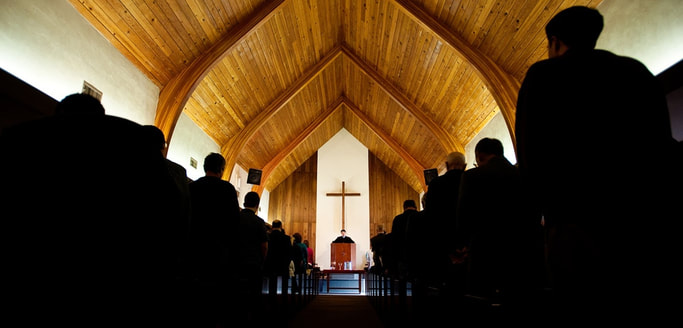
I love our Sunday gatherings. I love it even more that we usually have a "full house" each week. It is an absolute joy that few in the Hopewell flock ever miss a chance to join together in worship.
Being that we are above board on this one, it's a good time to address excuses for missing church. Satan hates it that you are in these pews week after week. And we need to be aware that all the demonic forces of hell are plotting to pull you away.
Being that this is so, let's consider some of the most common excuses for skipping church.
1. I don't feel like going. I put this first because it is nearest and dearest to me. There are many days that I don't feel like going...and I'm the guy who usually has to preach.
Don't get me wrong, I love church. I love our church family. But sometimes my body is tired, I'd like to nurse that sinus pressure, or I have a serious case of the introverts.
Sometimes it can be more spiritual in nature: you feel down, depressed, or have some other options that are a little more fun available to you. These are common snares to worship attendance.
There may be legit reasons for not going to church (by all means, if you're sick, stay home). However, we need to be careful that our feelings are not dictating our behavior or giving us a lame justification for missing out on the worship of the King.
2. I've been burnt by the church. I don't want to downplay your hurt, but we must admit that this is not an excuse to cut out on worship. In all reality, we should expect the ugly sinners in the church to hurt us.
We can remember too that Jesus was burnt by the church in a pretty terrific way. Yet he never gave up on his people or organized religion. Worship was and is still a priority for him.
You, God, are my God,
earnestly I seek you;
I thirst for you,
my whole being longs for you.
Psalm 63:1
earnestly I seek you;
I thirst for you,
my whole being longs for you.
Psalm 63:1
Additionally, our primary focus for worship is to be the Lord, not his people. Scripture urges us to seek the Lord and his grace, to celebrate His kindness, and offer ourselves to him (even with all our brokenness). And if someone poses a problem with that, we are to use the means of Matthew 5:25f and 18:15f to get it right.
3. I've not found a good fit yet. News flash: Worship is not like choosing a pair of underwear.
It doesn't matter what kind of worship style they have or if you feel like you stand out. It's about coming to the Lord and giving him your sacrifice of praise.
You may cite doctrinal differences, and this will sound quite pious. But it's no real justification for avoiding worship. Jesus had some doctrinal differences, and he still attended the synagogue each sabbath (Luke 4:16). As long as it is not heretical, you can still worship there. You may have to grit your teeth and show some grace, but you can do it.
4. I've had a busy week. That's wonderful. I'm glad you are serving and have so many opportunities. You deserve a break. And worship is the best way to refresh yourself.
God instituted the Sabbath because he knew our human frailty needed it. Worship is a part of the rest we so desperately need. As a matter of fact, getting refreshment for your soul is the primary way to restore your sanity and your beleaguered body.
What's best, you can reward yourself with a good, long nap in the afternoon.
5. I get better teaching online. I'm not going to disagree with this one. You can definitely get better teaching from the web. I'd rather listen to Alistair Beg than listen to myself too.
However, worship is more than a sermon. In worship, you meet with God and his people. There's something sacred to being amidst the body of Christ. The Spirit of God comes in a unique manner when the people meet corporately. That's something you just can't get from a video or podcast.
Online teaching isolates you too. If you are in the habit of watching or listening to sermons, then you are missing out on how your gifts and graces (and merely your presence) can benefit the wider body of Christ.
3. I've not found a good fit yet. News flash: Worship is not like choosing a pair of underwear.
It doesn't matter what kind of worship style they have or if you feel like you stand out. It's about coming to the Lord and giving him your sacrifice of praise.
You may cite doctrinal differences, and this will sound quite pious. But it's no real justification for avoiding worship. Jesus had some doctrinal differences, and he still attended the synagogue each sabbath (Luke 4:16). As long as it is not heretical, you can still worship there. You may have to grit your teeth and show some grace, but you can do it.
4. I've had a busy week. That's wonderful. I'm glad you are serving and have so many opportunities. You deserve a break. And worship is the best way to refresh yourself.
God instituted the Sabbath because he knew our human frailty needed it. Worship is a part of the rest we so desperately need. As a matter of fact, getting refreshment for your soul is the primary way to restore your sanity and your beleaguered body.
What's best, you can reward yourself with a good, long nap in the afternoon.
5. I get better teaching online. I'm not going to disagree with this one. You can definitely get better teaching from the web. I'd rather listen to Alistair Beg than listen to myself too.
However, worship is more than a sermon. In worship, you meet with God and his people. There's something sacred to being amidst the body of Christ. The Spirit of God comes in a unique manner when the people meet corporately. That's something you just can't get from a video or podcast.
Online teaching isolates you too. If you are in the habit of watching or listening to sermons, then you are missing out on how your gifts and graces (and merely your presence) can benefit the wider body of Christ.
_________________________________________
Do You have a Better Excuse?
What about you? What excuses have you made or heard? I'm sure they can't be as bad as these. (ha!) Be sure to send us your best if you have one.
Do You have a Better Excuse?
What about you? What excuses have you made or heard? I'm sure they can't be as bad as these. (ha!) Be sure to send us your best if you have one.
Last Day for the Used Bible Drive
Do you have old Bibles lying around collecting dust? Let's put them to good use! This month Hopewell will be collecting used Bibles to donate to Mission Cry. This ministry supplies pastors in devastated places around the world with resources they could not otherwise afford.
Do you have old Bibles lying around collecting dust? Let's put them to good use! This month Hopewell will be collecting used Bibles to donate to Mission Cry. This ministry supplies pastors in devastated places around the world with resources they could not otherwise afford.
Had Enough of the Excuses?
Maybe you're not a part of the regular Hopewell crew. Maybe you've fallen out of the habit of being in worship and would like to get back in it. If that's so, please know that we'd love to have you come and worship with us. Find out more at our website, or contact me to have a chat over coffee.
Maybe you're not a part of the regular Hopewell crew. Maybe you've fallen out of the habit of being in worship and would like to get back in it. If that's so, please know that we'd love to have you come and worship with us. Find out more at our website, or contact me to have a chat over coffee.
__________________________________
"I will make him a helper fit for him."
Gen. 2:18
__________________________________
"I will make him a helper fit for him."
Gen. 2:18
__________________________________
Grasping the Woman's Divine Design
Part 2
[View part 1 of this series]
In our last issue of the Hopewell weekly, we began to consider how a woman can reflect God's nature by being her husband's helper. In this issue, we want to bring to light three more areas where women can exert their role as helper.
1. Help him grow in godliness.
Your husband is a sinner and lacks the virtues that God desires him to have. He may even have certain areas of real bondage, such as anger, sloth, addiction, or poor communication.
While the world says that you should ditch him and find someone you deserve, the Bible says otherwise. God has, in His wisdom, placed you at this side so that he can become a more righteous person.
You can increase his sanctification as you offer gentle admonishments, set before him a godly example, and react with grace and self-control to his failures.
Just as the Helper, the Holy Spirit, comes alongside us to help us overcome our sin and become more sanctified, you can encourage spiritual growth in your husband.
2. Help him in the decision making process.
You are your husband's chief advisor. Providing good counsel for the decisions he has to make is a glorious help.
Some women view their role as an excuse to get out of the decision making process. They say, "That's his job, not mine" with great relief. But decision making is just as daunting to him as it is to you. It's a huge help if you are engaged in this process.
Like a president's cabinet member, your perspective and input are vital. Even if he doesn't take your advice or chooses to go against it, your thoughts are still helpful. You allow him a chance to consider options, weigh pros and cons, and appraise alternative strategies.
3. Help him by giving him the respect he needs.
What if he doesn't take your advice? Worse yet, what if he makes the wrong decision? What do you do now? You help him by showing him the highest degree of respect. (Eph. 5:33).
You may be tempted to gloat or give the air of “I told you so,” but a godly helper seek to build her husband up and take it all in stride. She knows God is good and will glorify Himself in everything.
Keep in mind that when a man is honored, it will likely have a radical affect on him. He will want to present himself as honorable. Many women have found that putting on a respectful tone, dialogue, and body language transformed their husbands and their marriages.
It just goes to show that showing respect, even when your husband is not all that deserving, is the true help that he needs in his life.
1. Help him grow in godliness.
Your husband is a sinner and lacks the virtues that God desires him to have. He may even have certain areas of real bondage, such as anger, sloth, addiction, or poor communication.
While the world says that you should ditch him and find someone you deserve, the Bible says otherwise. God has, in His wisdom, placed you at this side so that he can become a more righteous person.
You can increase his sanctification as you offer gentle admonishments, set before him a godly example, and react with grace and self-control to his failures.
Just as the Helper, the Holy Spirit, comes alongside us to help us overcome our sin and become more sanctified, you can encourage spiritual growth in your husband.
2. Help him in the decision making process.
You are your husband's chief advisor. Providing good counsel for the decisions he has to make is a glorious help.
Some women view their role as an excuse to get out of the decision making process. They say, "That's his job, not mine" with great relief. But decision making is just as daunting to him as it is to you. It's a huge help if you are engaged in this process.
Like a president's cabinet member, your perspective and input are vital. Even if he doesn't take your advice or chooses to go against it, your thoughts are still helpful. You allow him a chance to consider options, weigh pros and cons, and appraise alternative strategies.
3. Help him by giving him the respect he needs.
What if he doesn't take your advice? Worse yet, what if he makes the wrong decision? What do you do now? You help him by showing him the highest degree of respect. (Eph. 5:33).
You may be tempted to gloat or give the air of “I told you so,” but a godly helper seek to build her husband up and take it all in stride. She knows God is good and will glorify Himself in everything.
Keep in mind that when a man is honored, it will likely have a radical affect on him. He will want to present himself as honorable. Many women have found that putting on a respectful tone, dialogue, and body language transformed their husbands and their marriages.
It just goes to show that showing respect, even when your husband is not all that deserving, is the true help that he needs in his life.
Used Bible Drive
Do you have old Bibles lying around collecting dust? Let's put them to good use! This month Hopewell will be collecting used Bibles to donate to Mission Cry. This ministry supplies pastors in devastated places around the world with resources they could not otherwise afford.
Do you have old Bibles lying around collecting dust? Let's put them to good use! This month Hopewell will be collecting used Bibles to donate to Mission Cry. This ministry supplies pastors in devastated places around the world with resources they could not otherwise afford.
YES! FOOD!
It's always a treat to eat at Hopewell! This Sunday is our traditional 2nd Sunday fellowship meal. Bring a dish and/or a side to share if you are able. There’s always an abundance, so please plan to stay and enjoy even if you can’t pull something together. Table settings will be provided.
It's always a treat to eat at Hopewell! This Sunday is our traditional 2nd Sunday fellowship meal. Bring a dish and/or a side to share if you are able. There’s always an abundance, so please plan to stay and enjoy even if you can’t pull something together. Table settings will be provided.
__________________________________
"I will make him a helper fit for him."
Gen. 2:18
__________________________________
"I will make him a helper fit for him."
Gen. 2:18
__________________________________

The Lord created Eve for a special purpose: To emulate Him in this world.
God is our helper and he created women specifically to express that one aspect of His splendid nature (Ps 54:4; 46:1, 121:1, etc.). His divine design for women is that they may be their husbands' help mate for life.
But how does a woman fulfill this wonderful role? The following are just a few areas where your help as a wife is needed.
1. Companionship
Eve filled a distinct void in Adam's life. He needed a friend.
Scripture tells us that it was “not good that man should be alone.” Adam was created with a deficiency. Adam experienced this deficiency as he went around naming the animals. He found that not one could keep him from being lonely or give him the real companionship that he desired.
As a wife you help your husband by being a meaningful source of entertainment, conversation, and friendship. By your humor, encouragement, listening ear, and faithful presence, you help your man to get the most out of this life.
2. Leadership
A man is called to lead, but he will also fail to lead. When he abdicates his role his wife can be a tremendous help.
This doesn’t mean taking over the leadership. His wife should not say, “Well, I must do it then. If he won’t, I will.” She may be forced into this position if a man does not step forward, but this isn't to be her first line of action. A woman should find ways to encourage her husband and help him be the leader he should.
Complimenting him when he does lead (i.e. disciplines the kids) can be one way of engaging him more in his role. Asking, "What do you think we should do in this situation?" can prompt him to lead in decision making. Offering good advice or a gentle reminder (not a nag) can be a helpful thing too.
He needs your help in leading and being the man he should be.
3. Sexual fulfilment
You know that whole "burn with desire" thing mentioned in 1 Corinthians? This has particular application for men, and the importance of physical intimacy for a man cannot be overlooked. (As a matter of fact, I wanted to put this as #1 on the list, but I thought it may come across as weird. So I backed it down here to #3.)
The truth is, God gave men a robust sexual drive. And women would do well to remember that a man's sexual temperament is quite a bit different from hers. Men have an incredible need in this area and you may be a good help to your man by fulfilling his desires in this area.
That means being the initiator from time to time and considering how frequently you come together. You may want to flirt with your husband and let him know you desire him. You may want to even set aside particular nights for intimacy. A routine can help ensure he is not going unfulfilled.
4. Work
Adam's task was to take dominion and it's obvious that Eve's role was to assist in fulfilling that calling.
Through most of history the wife would work alongside her man doing the chores on the farm. Her help was very much a tag team affair. But even despite the Industrial Revolution, a woman can still be a great help to a man's productivity.
Paul calls women to be "keepers/workers at home." The word is literally a "house guardian." By tending to the daily household affairs and managing the children, a woman enables a man to thrive in his vocation. Sure he will have responsibilities around the house, but a good home guardian will help her husband be more productive in his work. He won’t be unnecessarily distracted or drained, but will have the energy and focus he needs to accomplish his day to day labors.
To be continued...
God is our helper and he created women specifically to express that one aspect of His splendid nature (Ps 54:4; 46:1, 121:1, etc.). His divine design for women is that they may be their husbands' help mate for life.
But how does a woman fulfill this wonderful role? The following are just a few areas where your help as a wife is needed.
1. Companionship
Eve filled a distinct void in Adam's life. He needed a friend.
Scripture tells us that it was “not good that man should be alone.” Adam was created with a deficiency. Adam experienced this deficiency as he went around naming the animals. He found that not one could keep him from being lonely or give him the real companionship that he desired.
As a wife you help your husband by being a meaningful source of entertainment, conversation, and friendship. By your humor, encouragement, listening ear, and faithful presence, you help your man to get the most out of this life.
2. Leadership
A man is called to lead, but he will also fail to lead. When he abdicates his role his wife can be a tremendous help.
This doesn’t mean taking over the leadership. His wife should not say, “Well, I must do it then. If he won’t, I will.” She may be forced into this position if a man does not step forward, but this isn't to be her first line of action. A woman should find ways to encourage her husband and help him be the leader he should.
Complimenting him when he does lead (i.e. disciplines the kids) can be one way of engaging him more in his role. Asking, "What do you think we should do in this situation?" can prompt him to lead in decision making. Offering good advice or a gentle reminder (not a nag) can be a helpful thing too.
He needs your help in leading and being the man he should be.
3. Sexual fulfilment
You know that whole "burn with desire" thing mentioned in 1 Corinthians? This has particular application for men, and the importance of physical intimacy for a man cannot be overlooked. (As a matter of fact, I wanted to put this as #1 on the list, but I thought it may come across as weird. So I backed it down here to #3.)
The truth is, God gave men a robust sexual drive. And women would do well to remember that a man's sexual temperament is quite a bit different from hers. Men have an incredible need in this area and you may be a good help to your man by fulfilling his desires in this area.
That means being the initiator from time to time and considering how frequently you come together. You may want to flirt with your husband and let him know you desire him. You may want to even set aside particular nights for intimacy. A routine can help ensure he is not going unfulfilled.
4. Work
Adam's task was to take dominion and it's obvious that Eve's role was to assist in fulfilling that calling.
Through most of history the wife would work alongside her man doing the chores on the farm. Her help was very much a tag team affair. But even despite the Industrial Revolution, a woman can still be a great help to a man's productivity.
Paul calls women to be "keepers/workers at home." The word is literally a "house guardian." By tending to the daily household affairs and managing the children, a woman enables a man to thrive in his vocation. Sure he will have responsibilities around the house, but a good home guardian will help her husband be more productive in his work. He won’t be unnecessarily distracted or drained, but will have the energy and focus he needs to accomplish his day to day labors.
To be continued...
Solid Help When You Need It
Life can be hard. If you are facing difficulties, avail yourself to great resources you have at Hopewell. Our church's leadership is always willing to help you through difficult times and give you biblical guidance on the problems you face.
Life can be hard. If you are facing difficulties, avail yourself to great resources you have at Hopewell. Our church's leadership is always willing to help you through difficult times and give you biblical guidance on the problems you face.
Worship, Grow, & Gain Friends
We'd love for you to connect with the Hopewell crew. Join us this Sunday and taste a little of the great things that the Lord is doing in our midst.
We'd love for you to connect with the Hopewell crew. Join us this Sunday and taste a little of the great things that the Lord is doing in our midst.
Expository Preaching | Edifying Worship | Godly Fellowship
_______________________________________
"For unto you is born this day in the city of David
a Savior,
who is Christ the Lord."
Luke 2:11
________________________________________
"For unto you is born this day in the city of David
a Savior,
who is Christ the Lord."
Luke 2:11
________________________________________

In recent years flash mobs have become a thing. In an unlikely place, such as a mall or random street corner, someone starts to sing or dance. In a matter of minutes, mobs of people join in and thrill the onlookers with the random acts of fine arts.
The Bible tells us of a similar experience that occured in the meadows outlining Bethlehem 200 years ago. A flash mob of angels sprung up out of nowhere to give a bunch of measly shepherds a rich taste of heaven's aesthetics.
The first notes to ring out were simple and pointed, "For unto you is born this day...a Savior."
Just as stunning are the designated recipients of this great message. The angelic announcement did not come to the religious elite or the political movers and shakers. To the contrary, the profound declaration was given to the lowest and meanest of society.
We romanticize the ancient shepherds today. Christmas cards and nativity scenes depict them as noble gents. But this couldn't be further from the truth.
Shepherds were a despicable bunch. They were renown liars and cheats. So notorious were they for their schemes that their testimony would not be accepted in a court of law.
Add to their crooked ways the fact that they were always considered "unclean." In the fields it was virtually impossible to keep ceremonially clean (but one wonders if such a shady bunch really cared about the law or its cleanliness anyway).
Thus we must grasp the significance of this heaven sent revelation: to you a Savior is born.
Oddly enough, these double dealing scoundrels were the ones God chose to be the first to attest to the Messiah's coming.
Is that not God's thing though: He offers salvation to the chief of sinners; then He turns these untrustworthy crooks into His witnesses.
Let it be remembered this Christmas season that God's grace is downright scandalous. He invites the unworthy and the incorrigible into His kingdom. He freely forgives the liar and the hypocrite. He pardons the sin and gladly transforms the useless into His sacred tools of good.
The Bible tells us of a similar experience that occured in the meadows outlining Bethlehem 200 years ago. A flash mob of angels sprung up out of nowhere to give a bunch of measly shepherds a rich taste of heaven's aesthetics.
The first notes to ring out were simple and pointed, "For unto you is born this day...a Savior."
Just as stunning are the designated recipients of this great message. The angelic announcement did not come to the religious elite or the political movers and shakers. To the contrary, the profound declaration was given to the lowest and meanest of society.
We romanticize the ancient shepherds today. Christmas cards and nativity scenes depict them as noble gents. But this couldn't be further from the truth.
Shepherds were a despicable bunch. They were renown liars and cheats. So notorious were they for their schemes that their testimony would not be accepted in a court of law.
Add to their crooked ways the fact that they were always considered "unclean." In the fields it was virtually impossible to keep ceremonially clean (but one wonders if such a shady bunch really cared about the law or its cleanliness anyway).
Thus we must grasp the significance of this heaven sent revelation: to you a Savior is born.
Oddly enough, these double dealing scoundrels were the ones God chose to be the first to attest to the Messiah's coming.
Is that not God's thing though: He offers salvation to the chief of sinners; then He turns these untrustworthy crooks into His witnesses.
Let it be remembered this Christmas season that God's grace is downright scandalous. He invites the unworthy and the incorrigible into His kingdom. He freely forgives the liar and the hypocrite. He pardons the sin and gladly transforms the useless into His sacred tools of good.
| Here at the end of 2019 the Lord has blessed us with the addition of some wonderful new families. We are particularly delighted to have the Keener family enter into membership with us! | It was a joy to witness Josiah's public profession of faith and baptism. May God grant him to grow in grace all his days! |
New Year's Eve
Join us as we ring in the new year in good old Hopewell style! Feel free to come or go whenever you want. We'll hang out and fellowship, and have a short time of prayer to inaugurate the new year.
Schedule:
Food: Pizza, drinks, and place settings are provided by the church. Please bring a side and/or dessert to share.
Fun: We have a gym and a room for 'less rowdy' fellowship. Please bring your board games, frisbees, balls, and whatever fun activities you'd like to share.
Be sure to invite your friends and RSVP to Kim!
Join us as we ring in the new year in good old Hopewell style! Feel free to come or go whenever you want. We'll hang out and fellowship, and have a short time of prayer to inaugurate the new year.
Schedule:
- 3pm - Sledding (pending snow). Meet at the Timmons' house. We'll return to chateau Timmons after we are done.
- 6pm - Pizza & Fun. Meet at Grace Church (1144 W Main St, Ashland).
Food: Pizza, drinks, and place settings are provided by the church. Please bring a side and/or dessert to share.
Fun: We have a gym and a room for 'less rowdy' fellowship. Please bring your board games, frisbees, balls, and whatever fun activities you'd like to share.
Be sure to invite your friends and RSVP to Kim!
HOPEWELL CHURCH
A Reformed and family integrated Church in Ashland, Ohio.
Come & Worship
Sunday Mornings
@ 10:30 am
LOCATION
1023 Elm St
Ashland, OH 44805
@ 10:30 am
LOCATION
1023 Elm St
Ashland, OH 44805
Categories
All
Instruction
News
Newsletters
Pictures
Worship







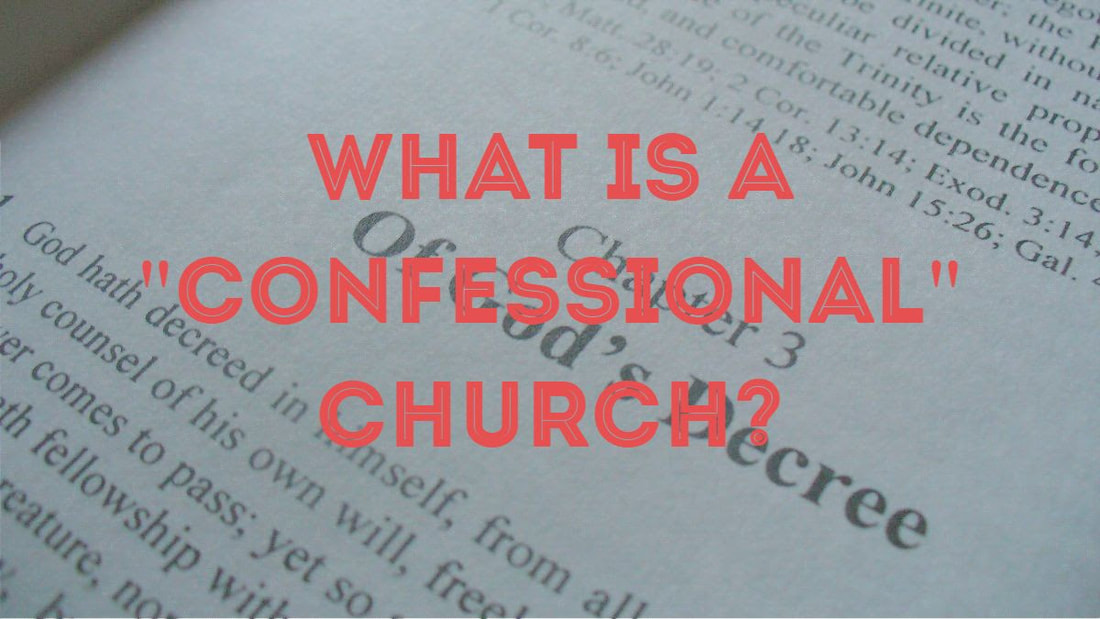






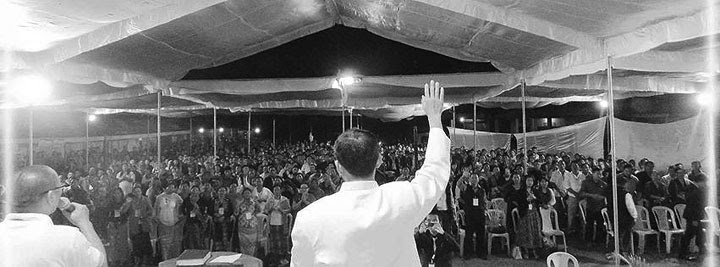
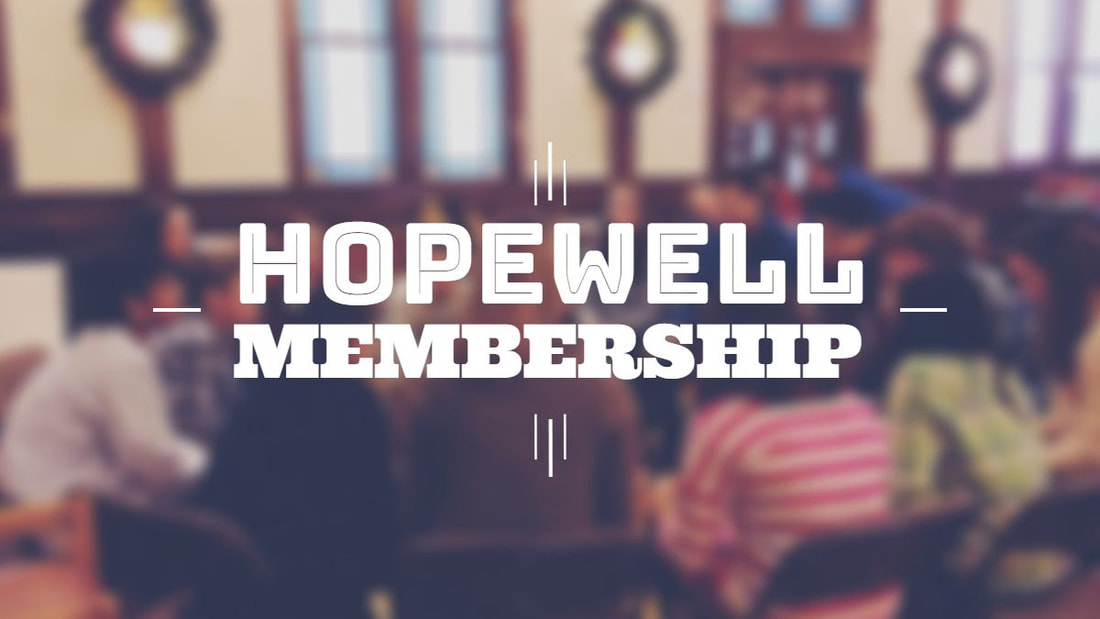

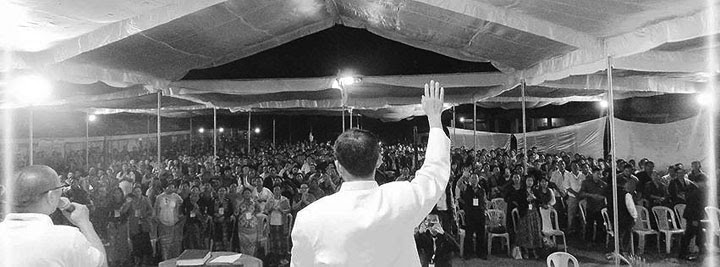























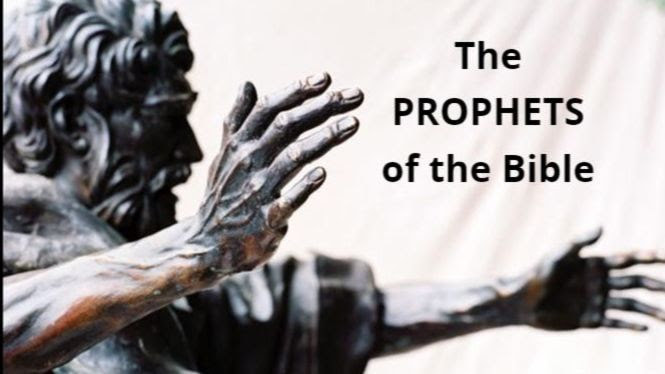


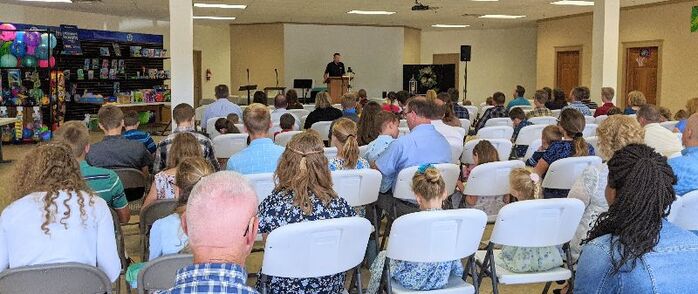












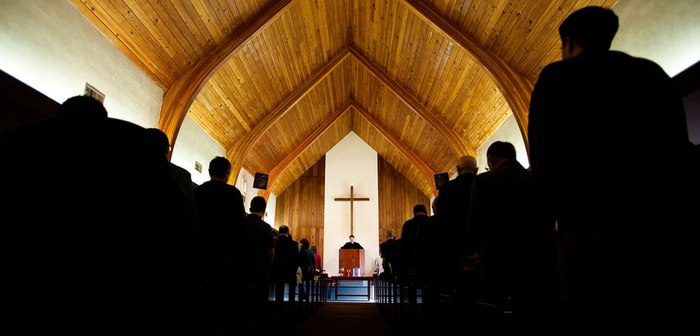













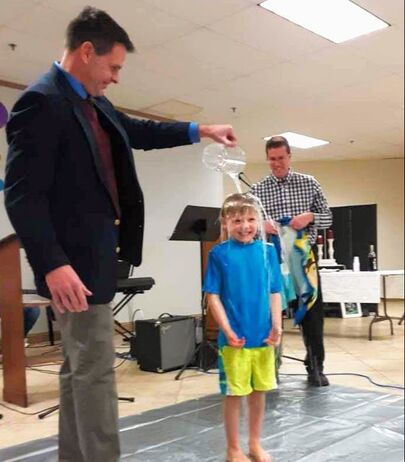

 RSS Feed
RSS Feed